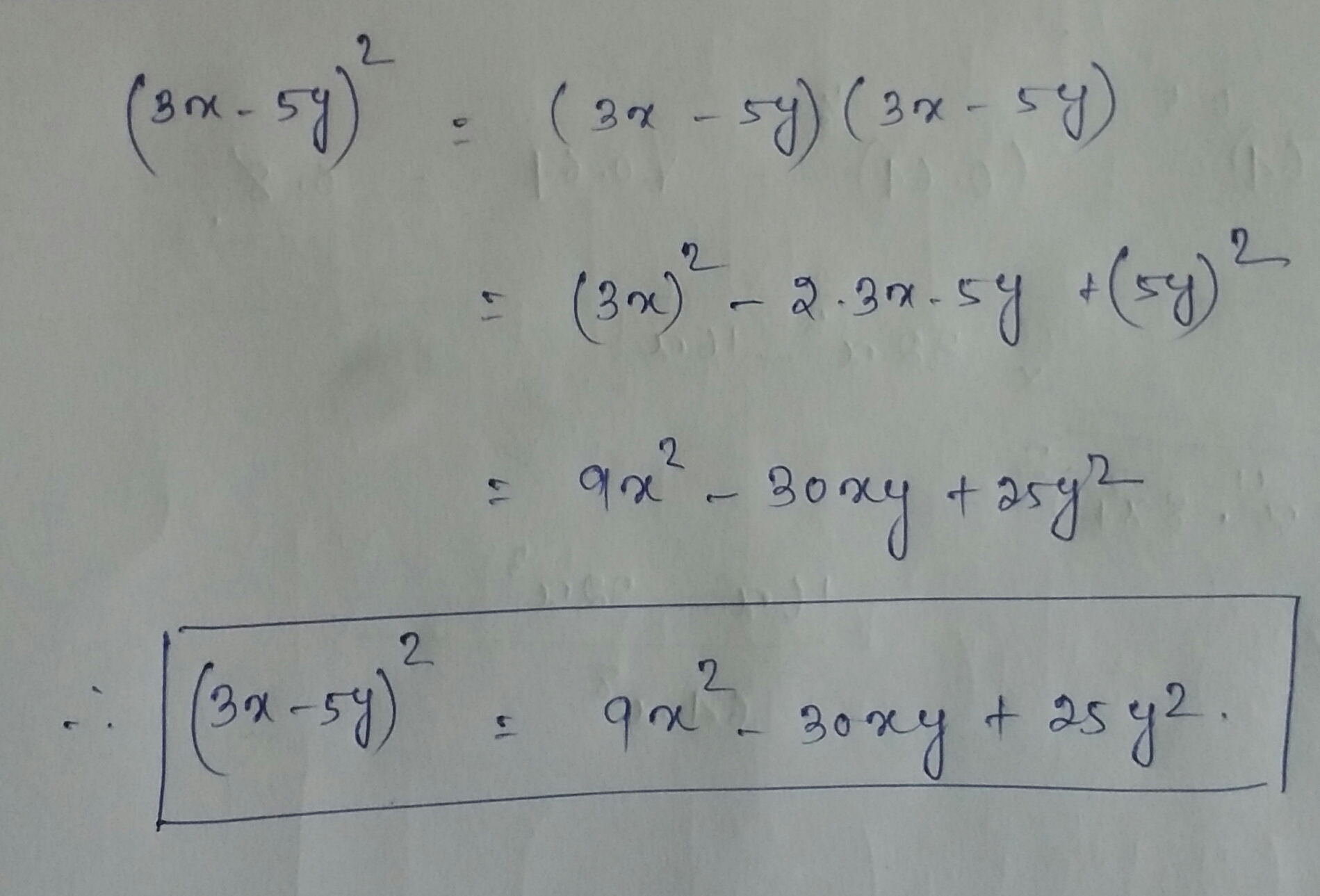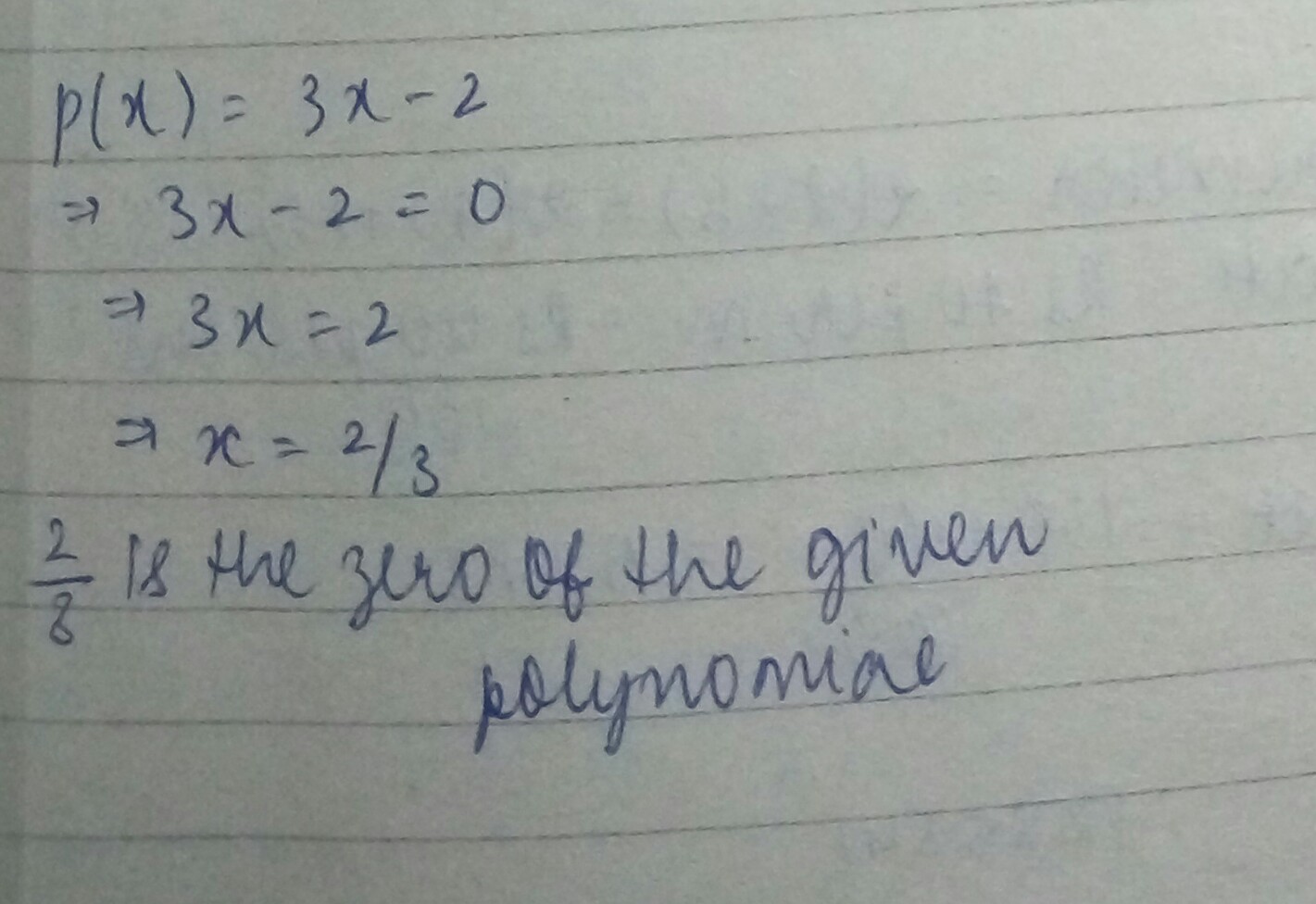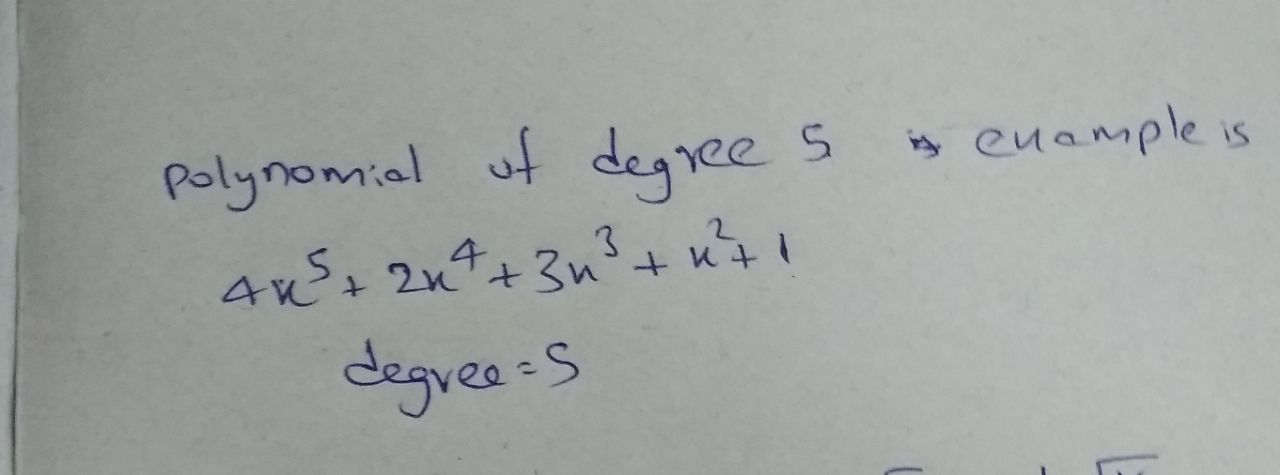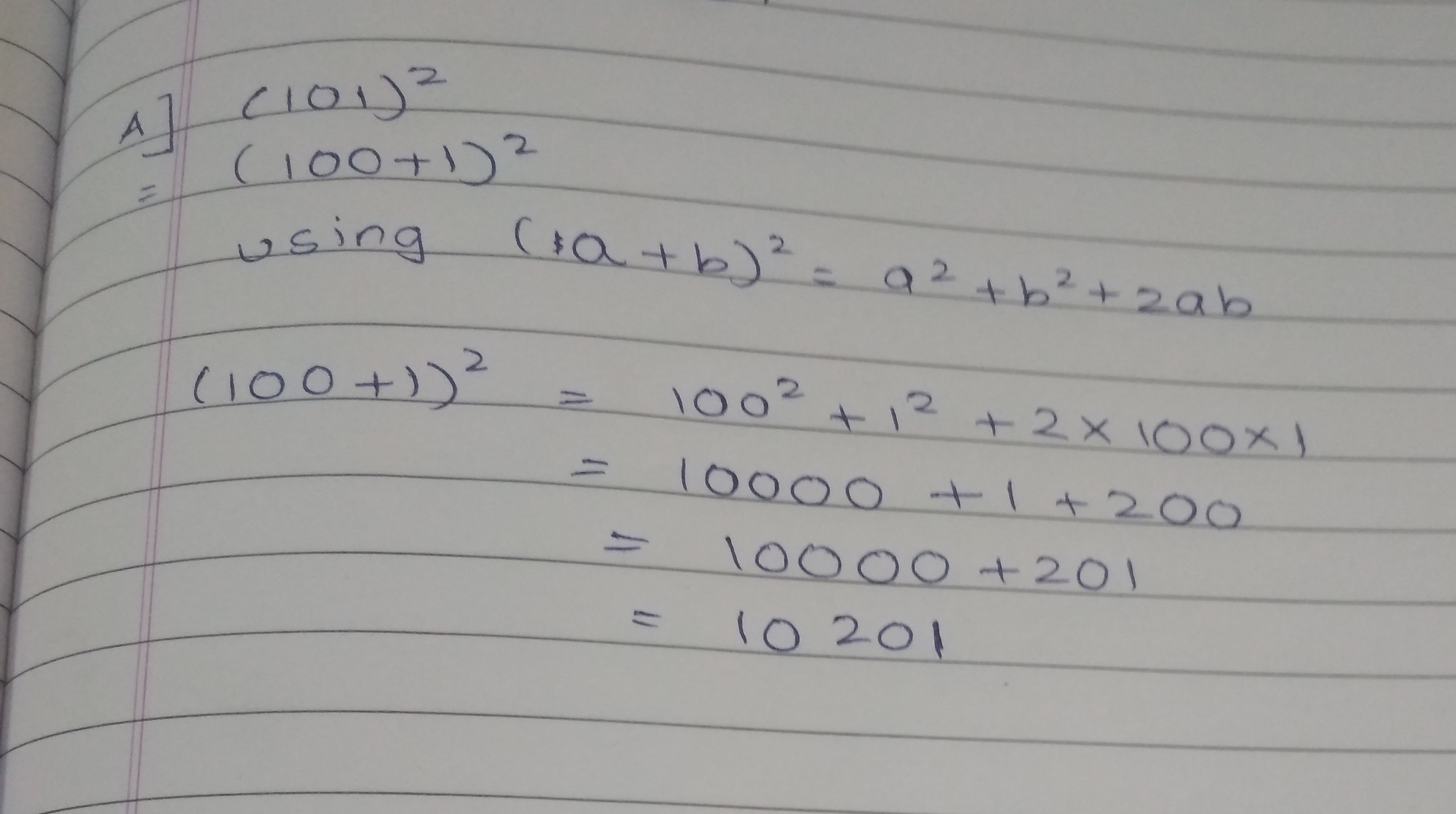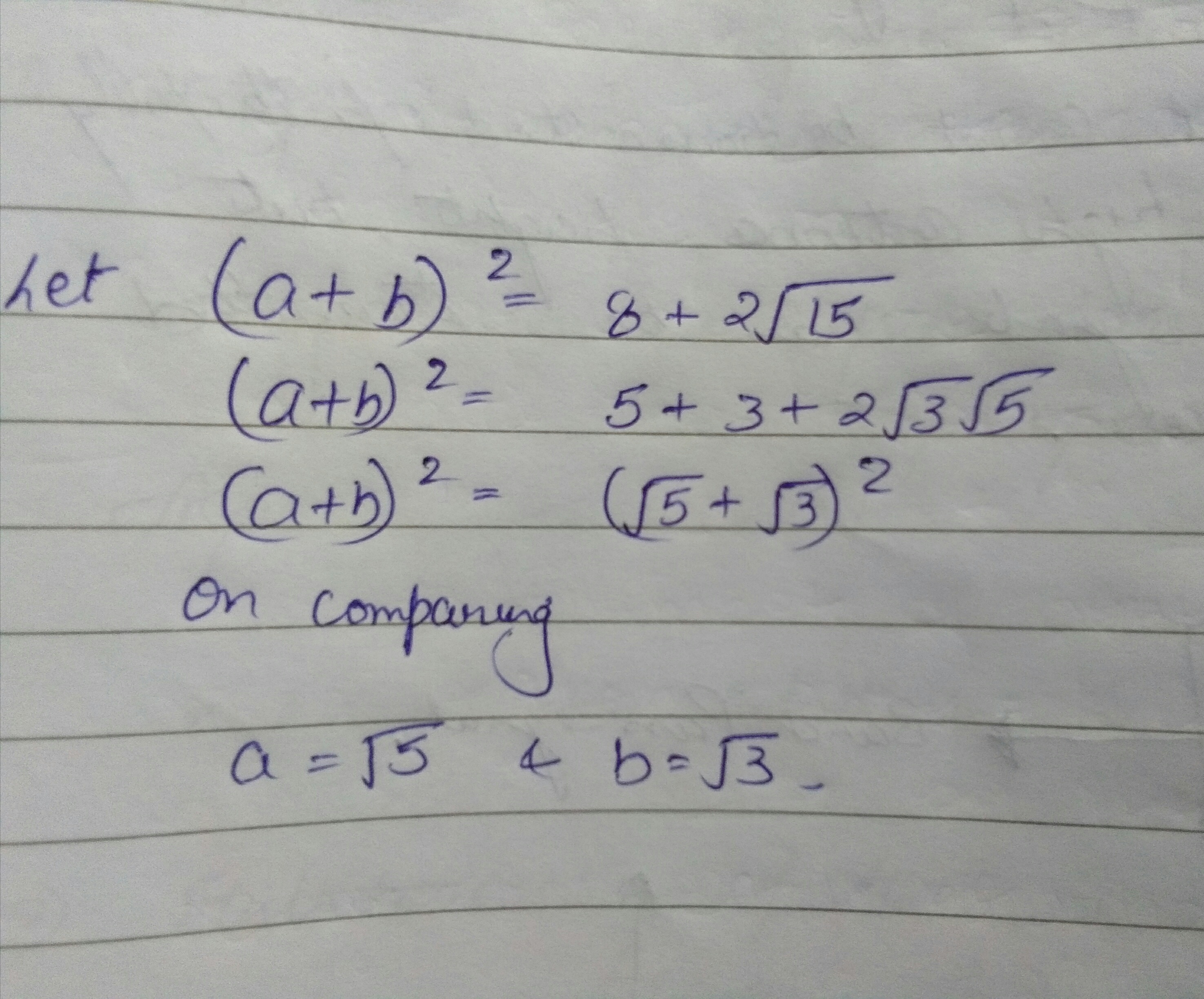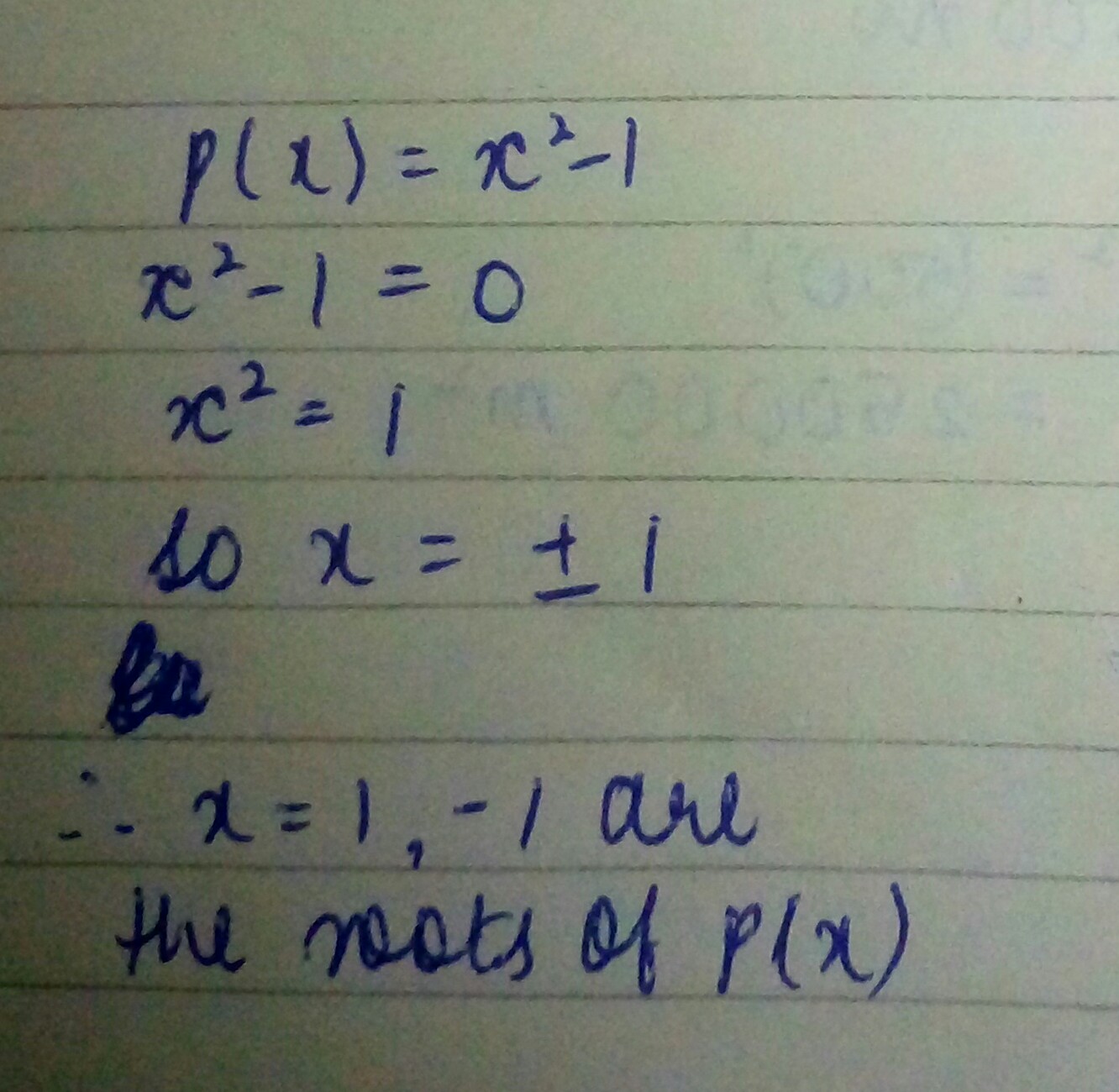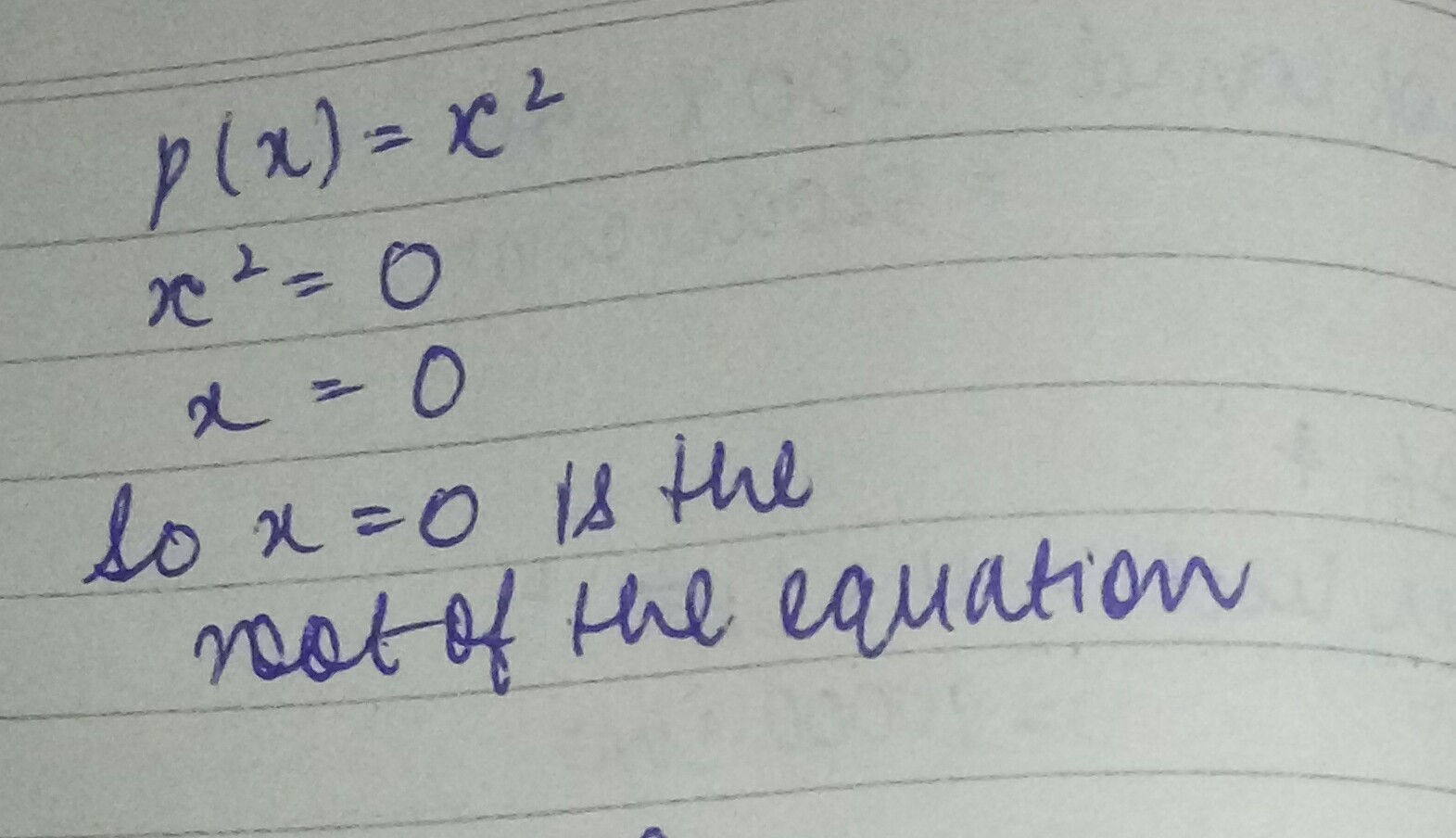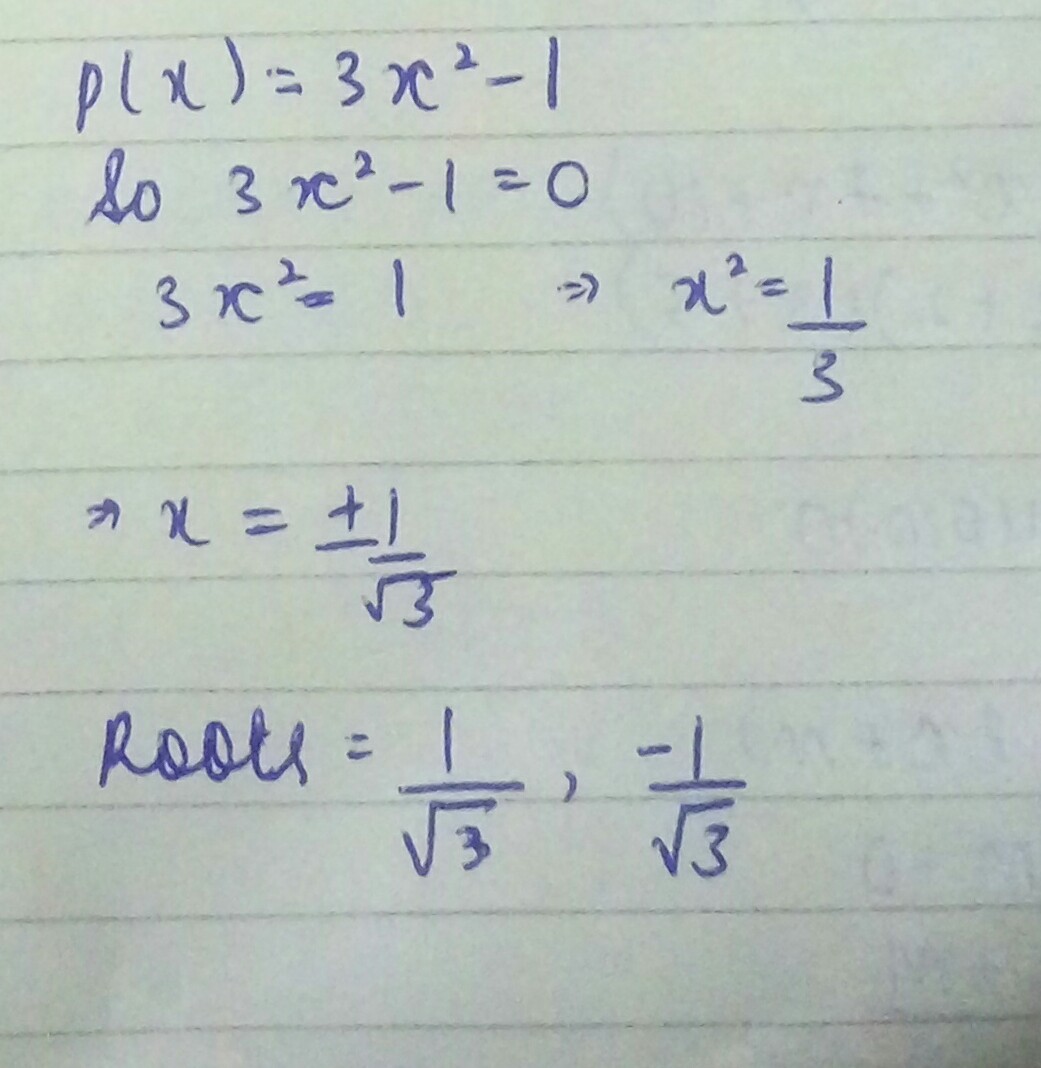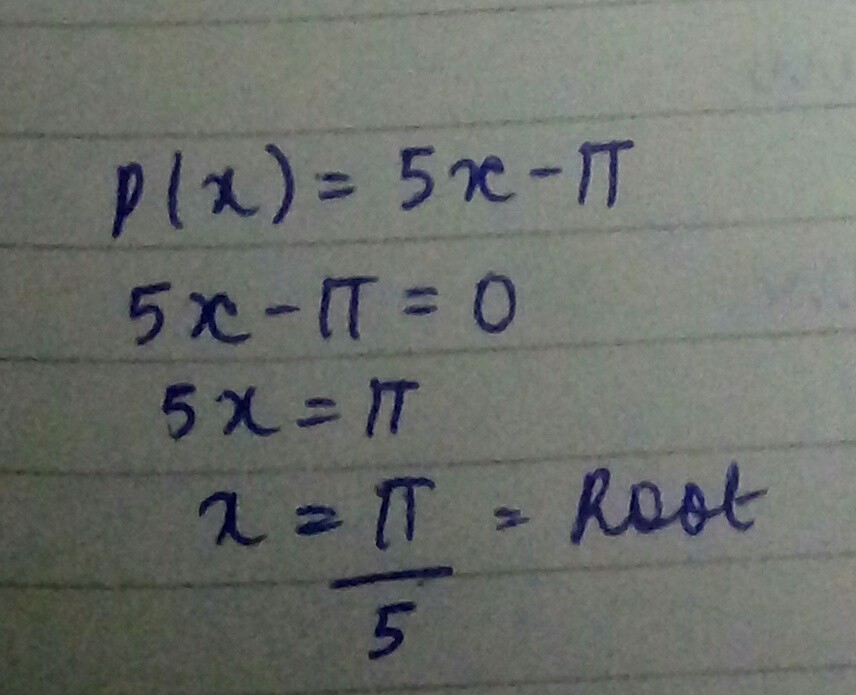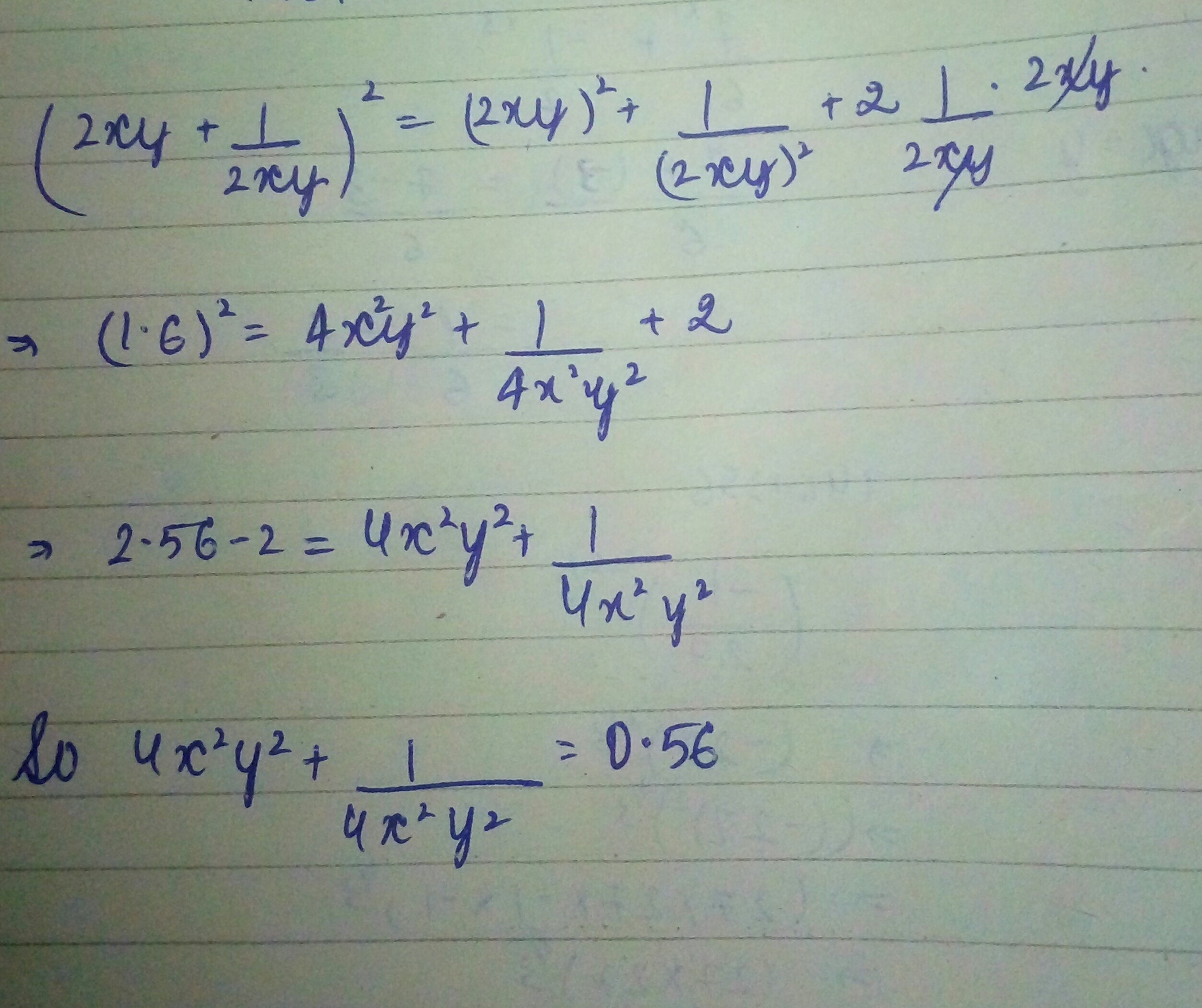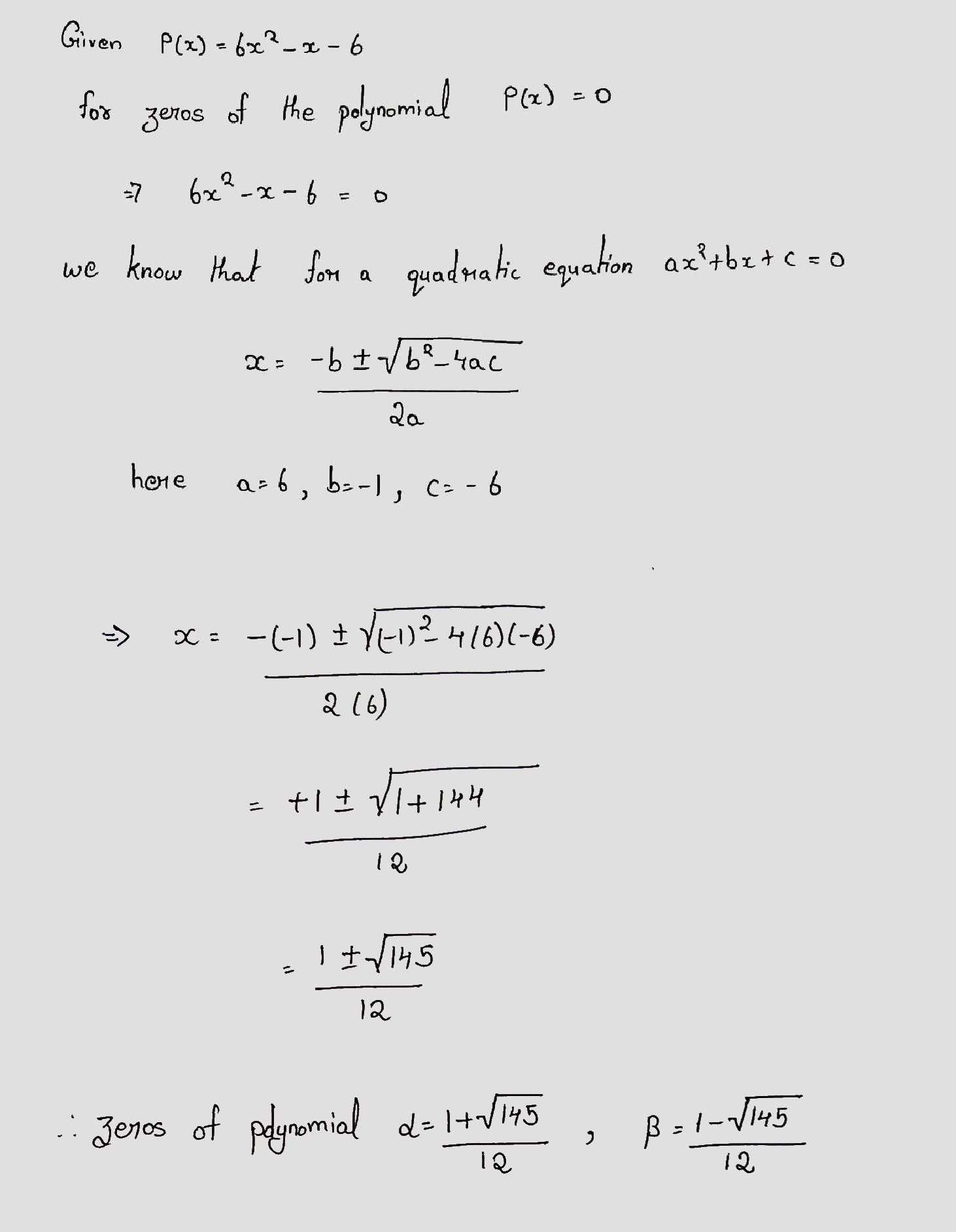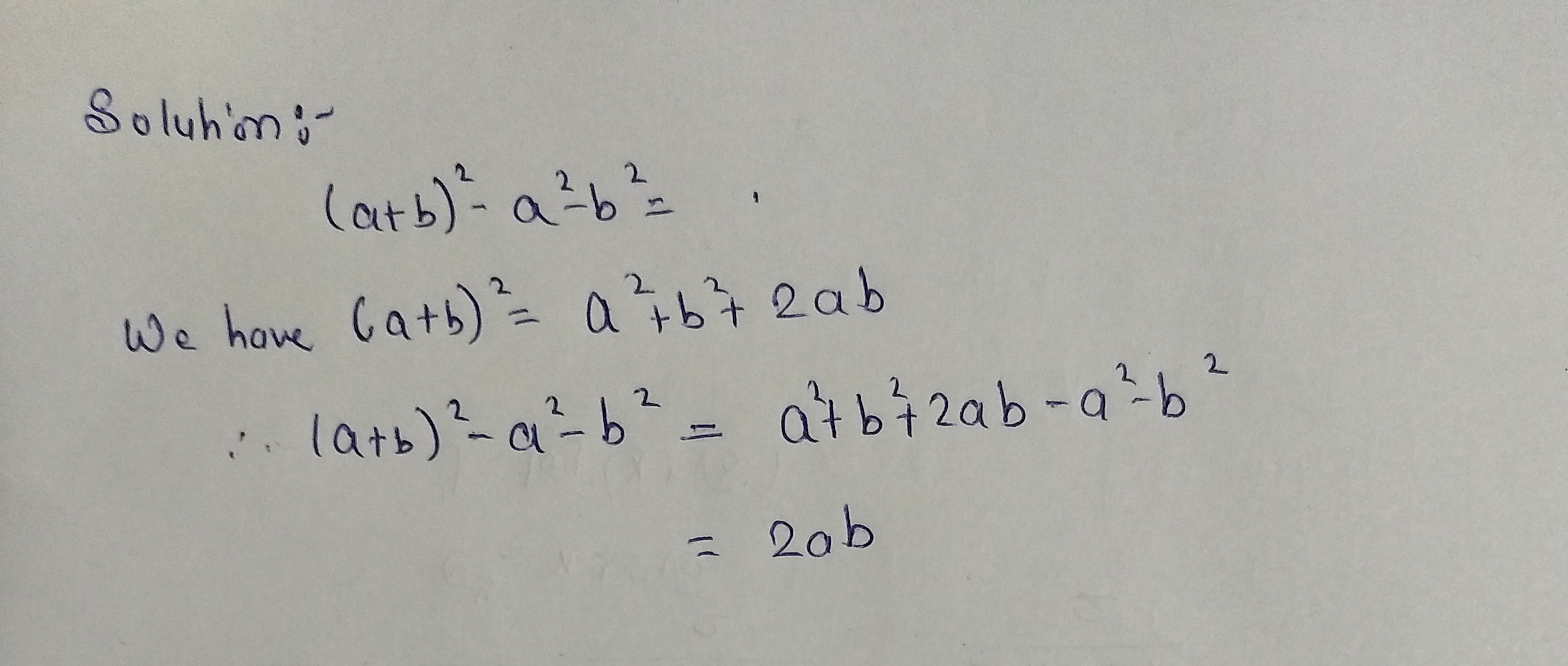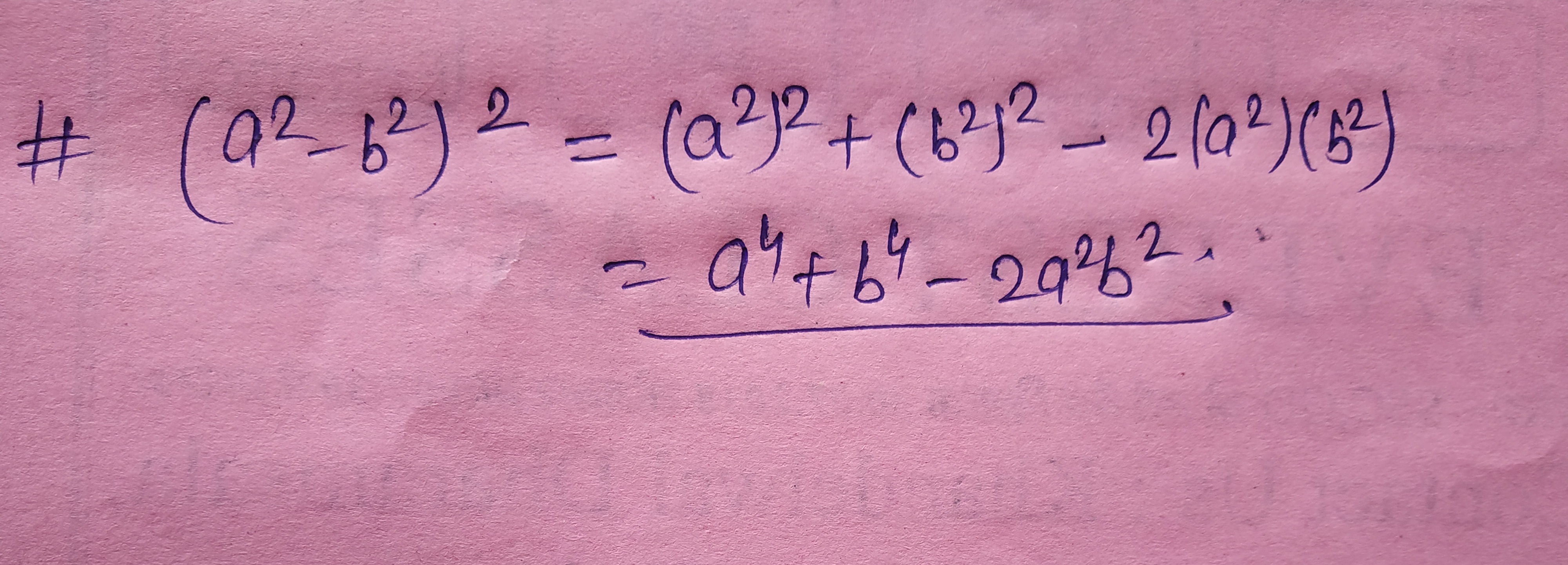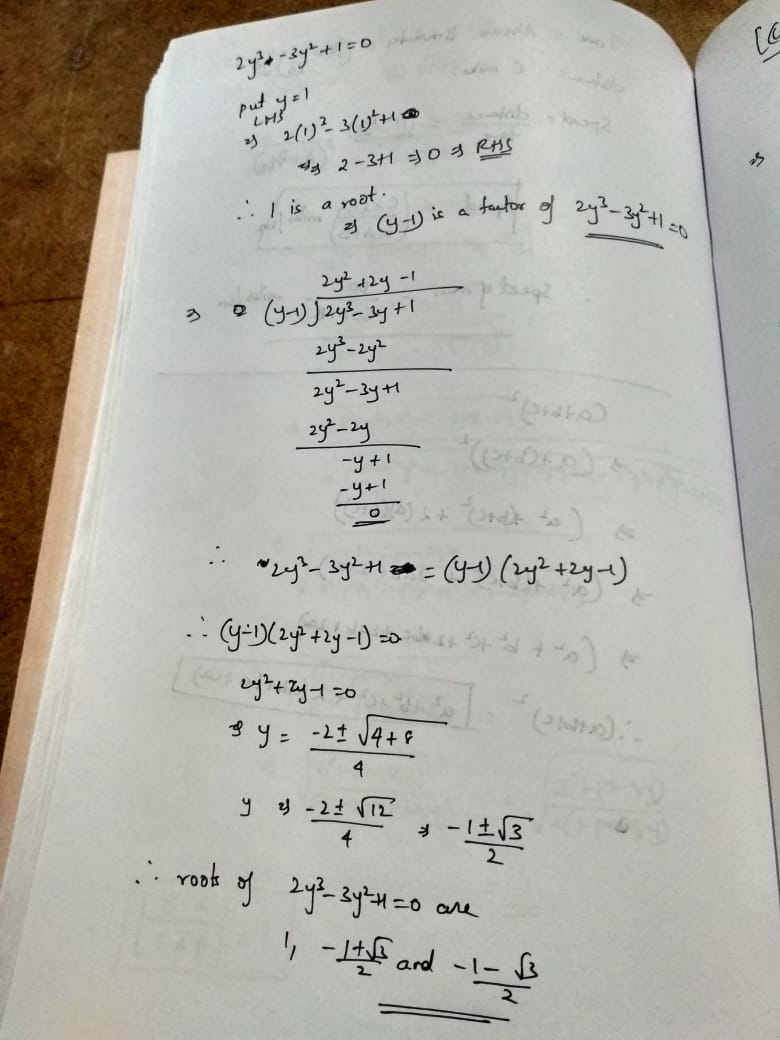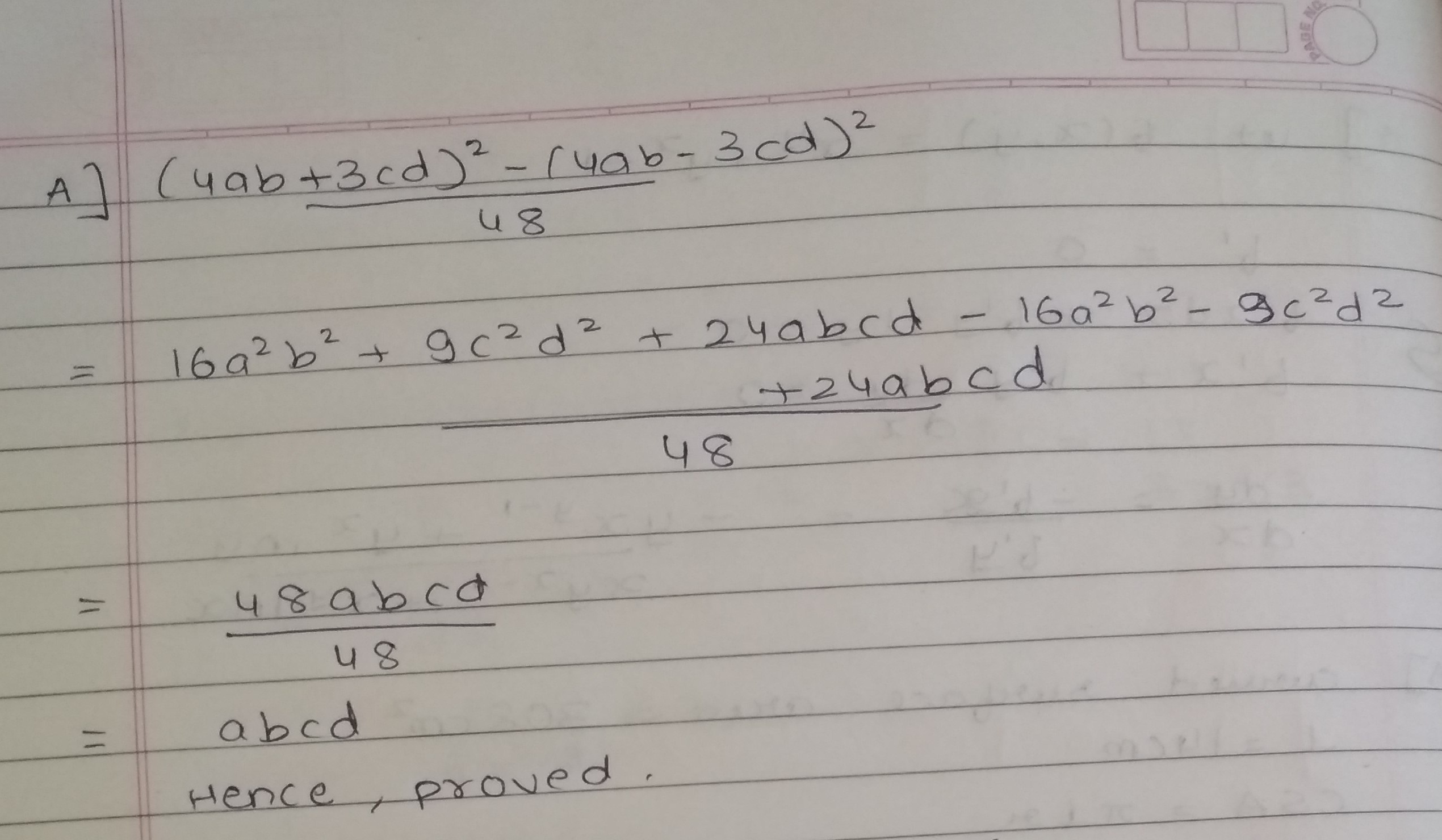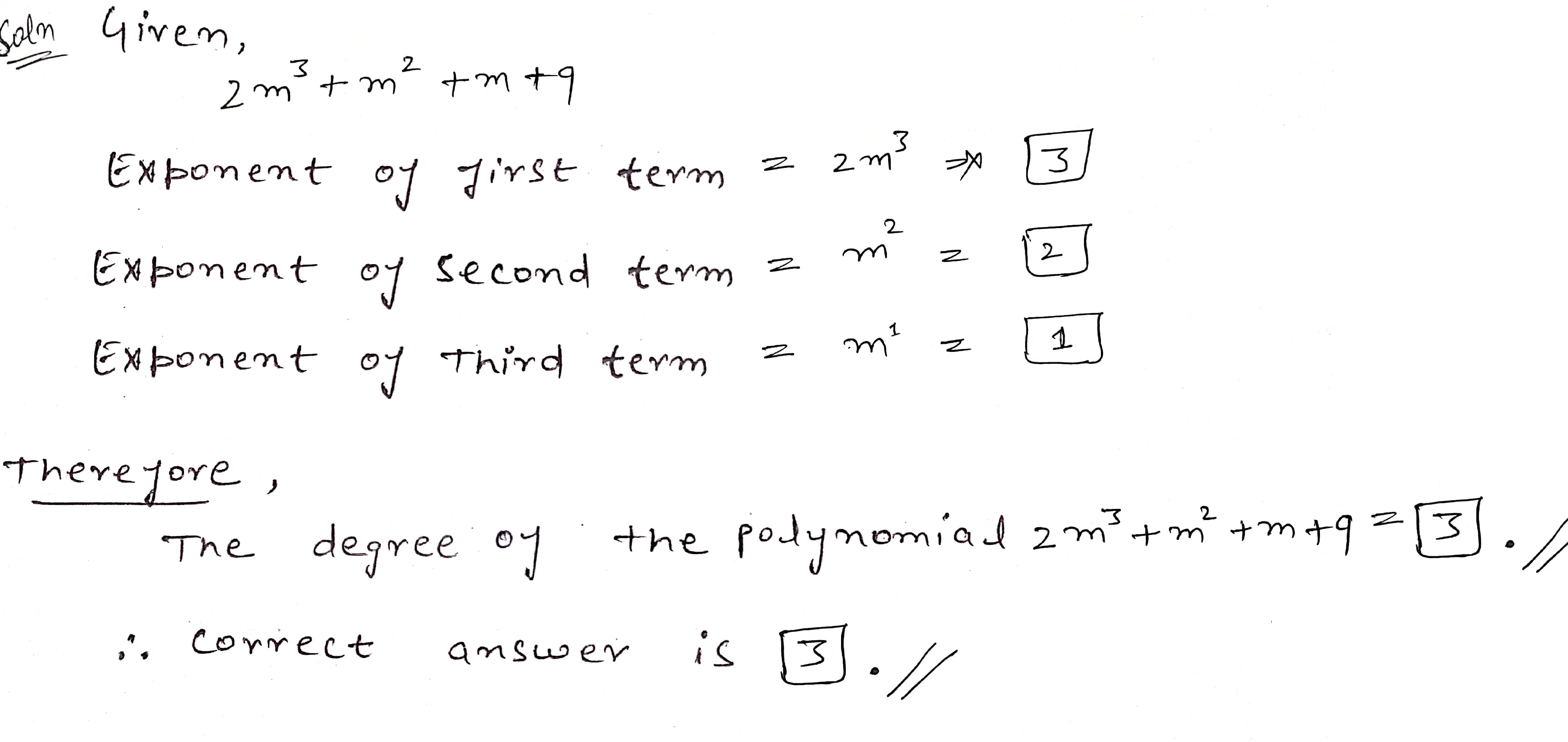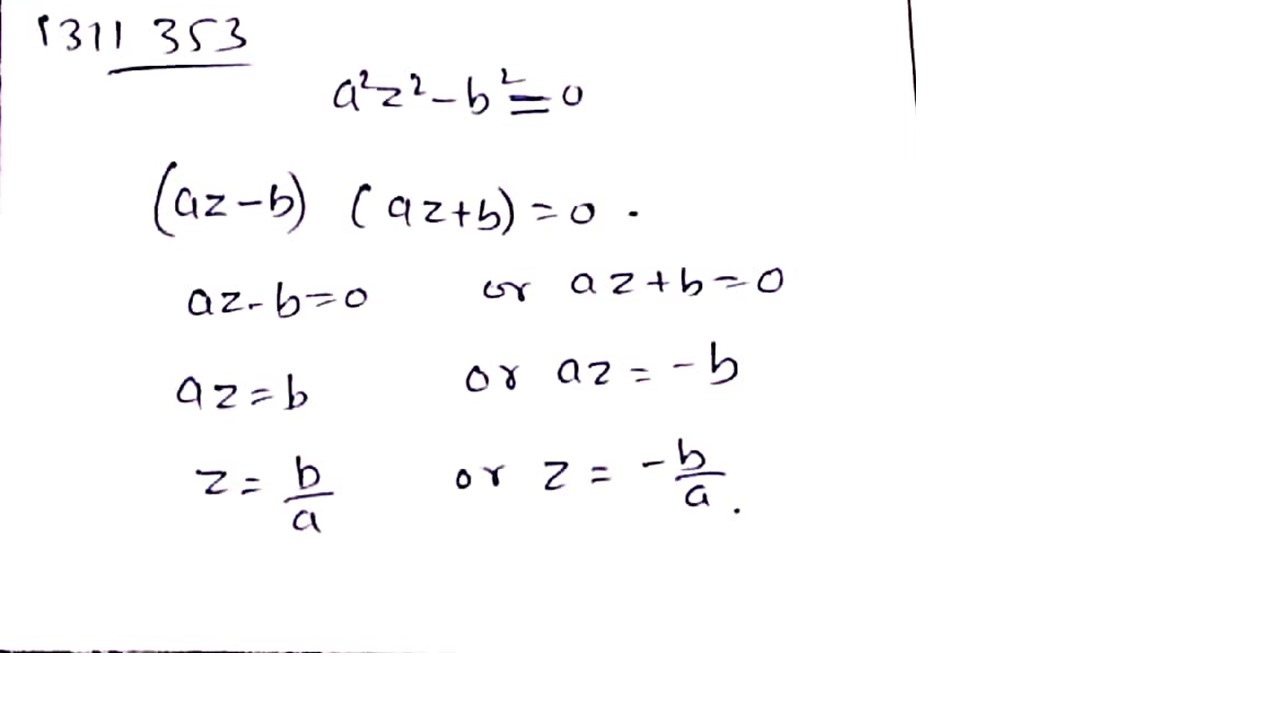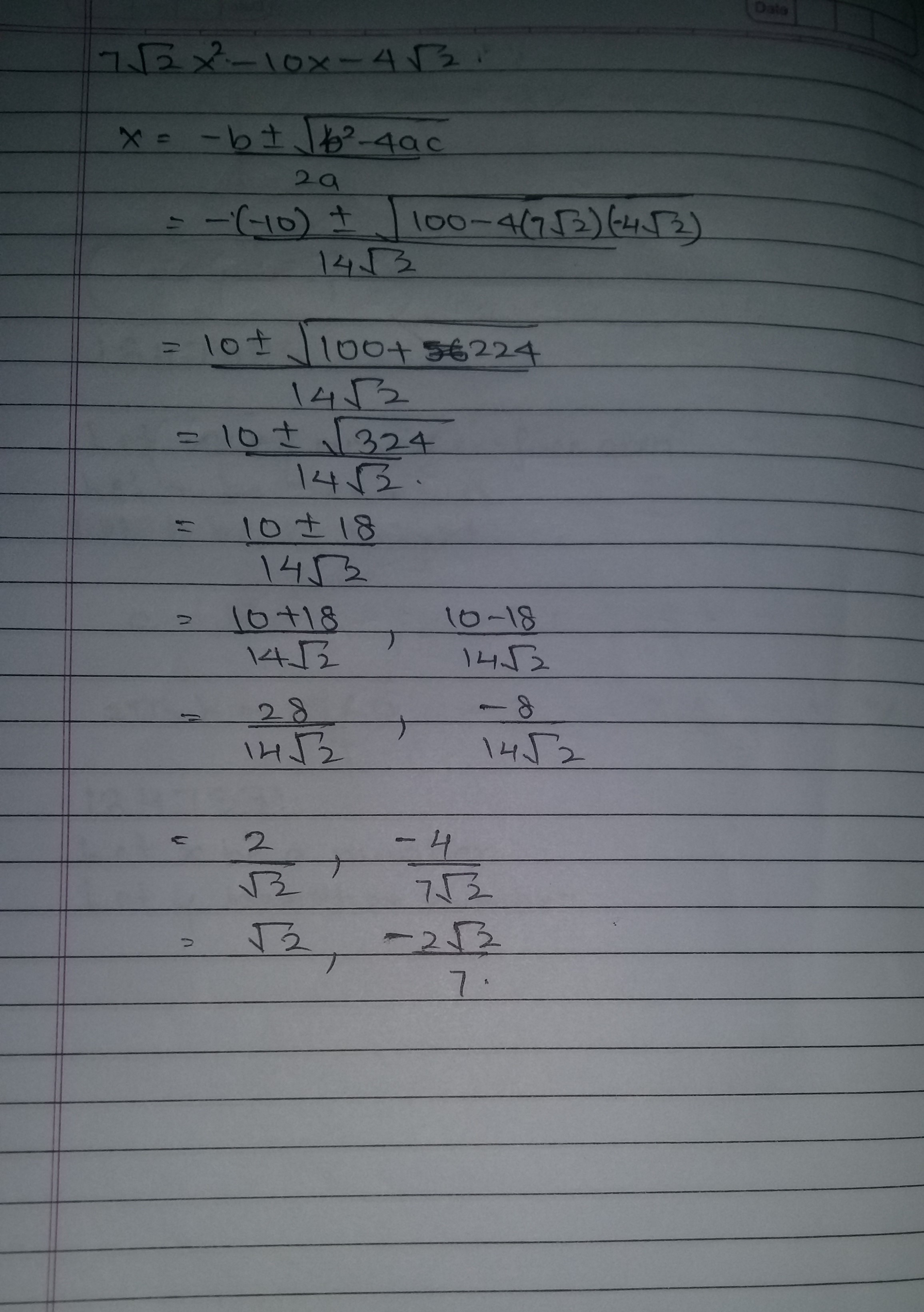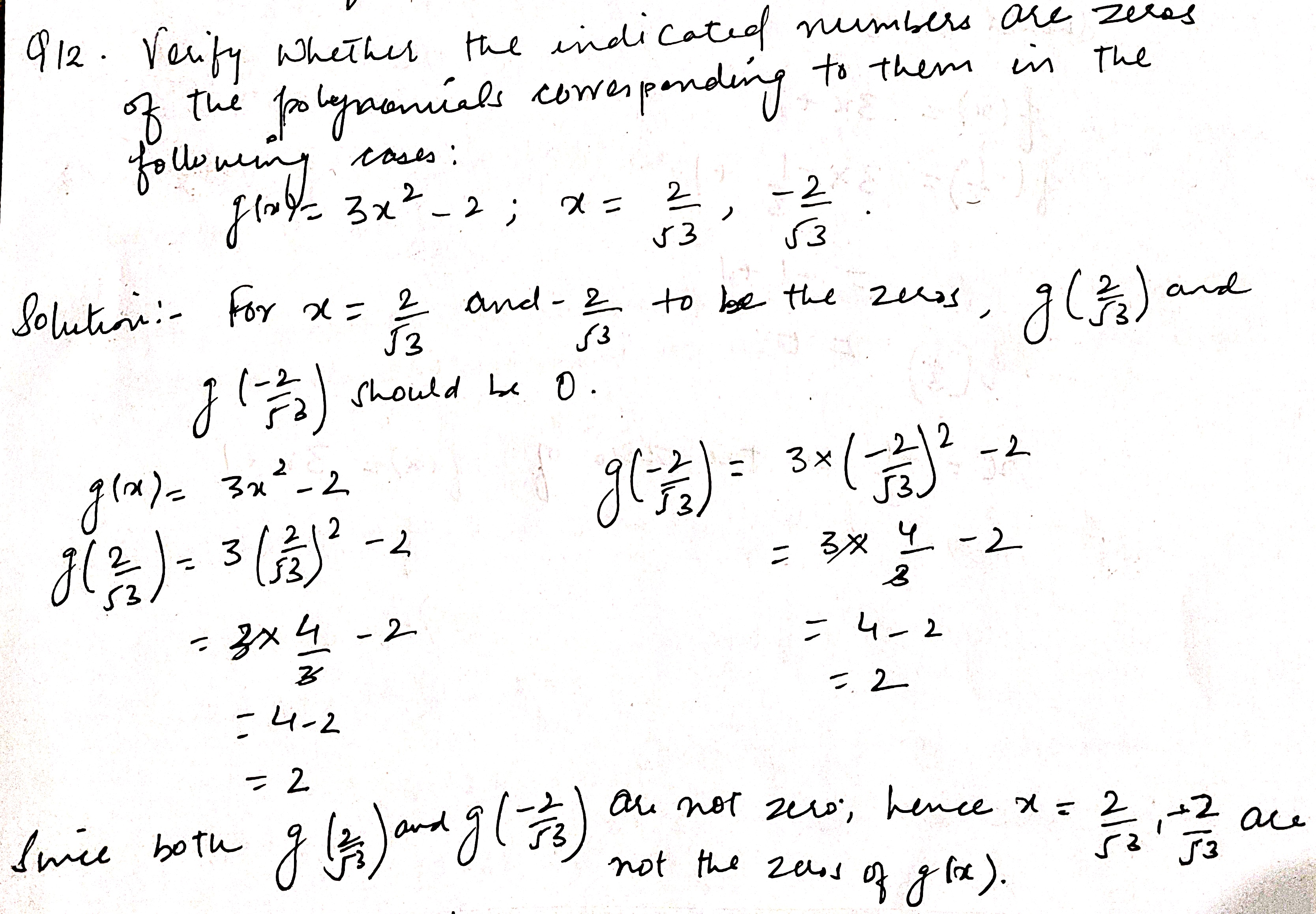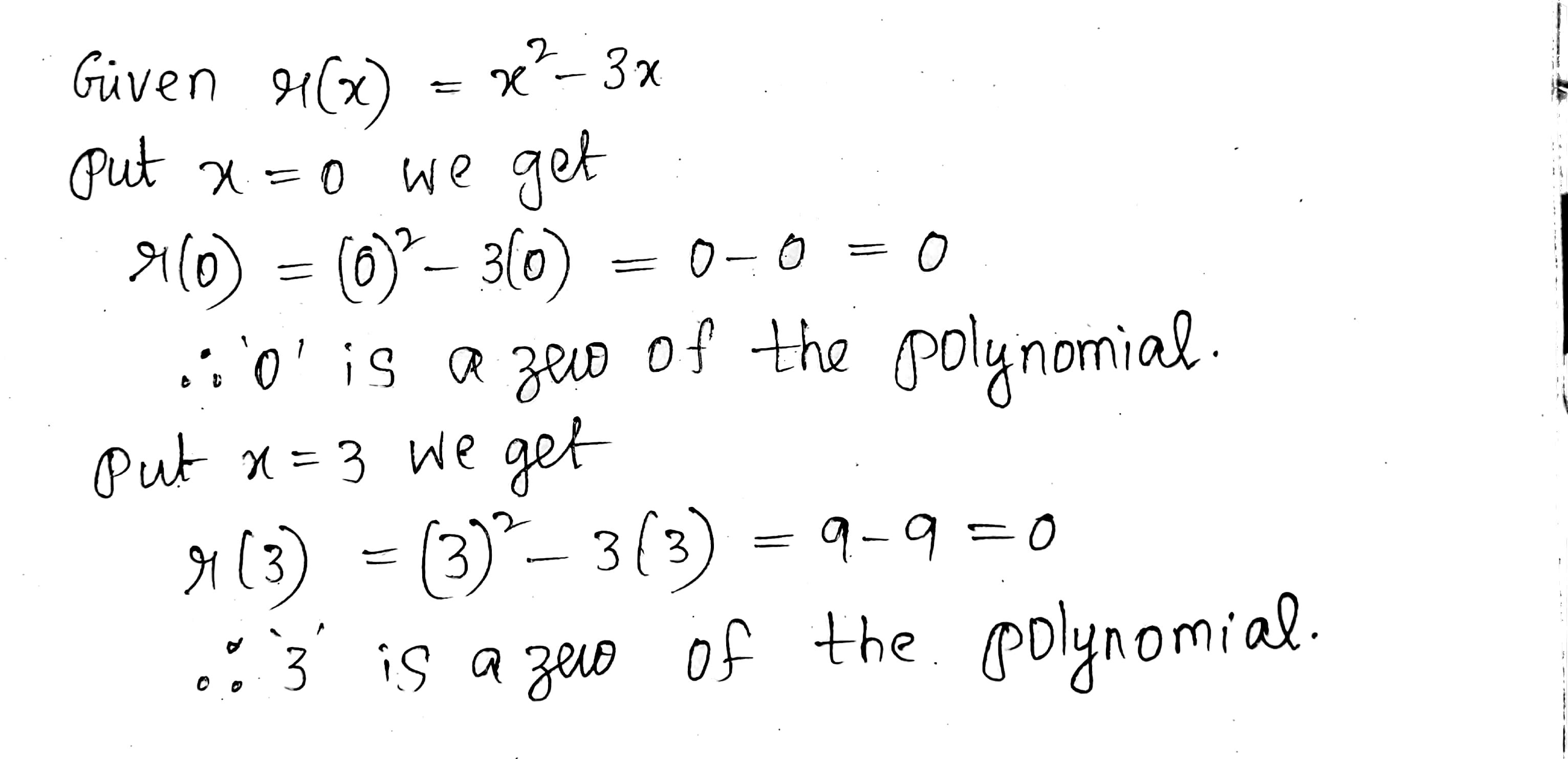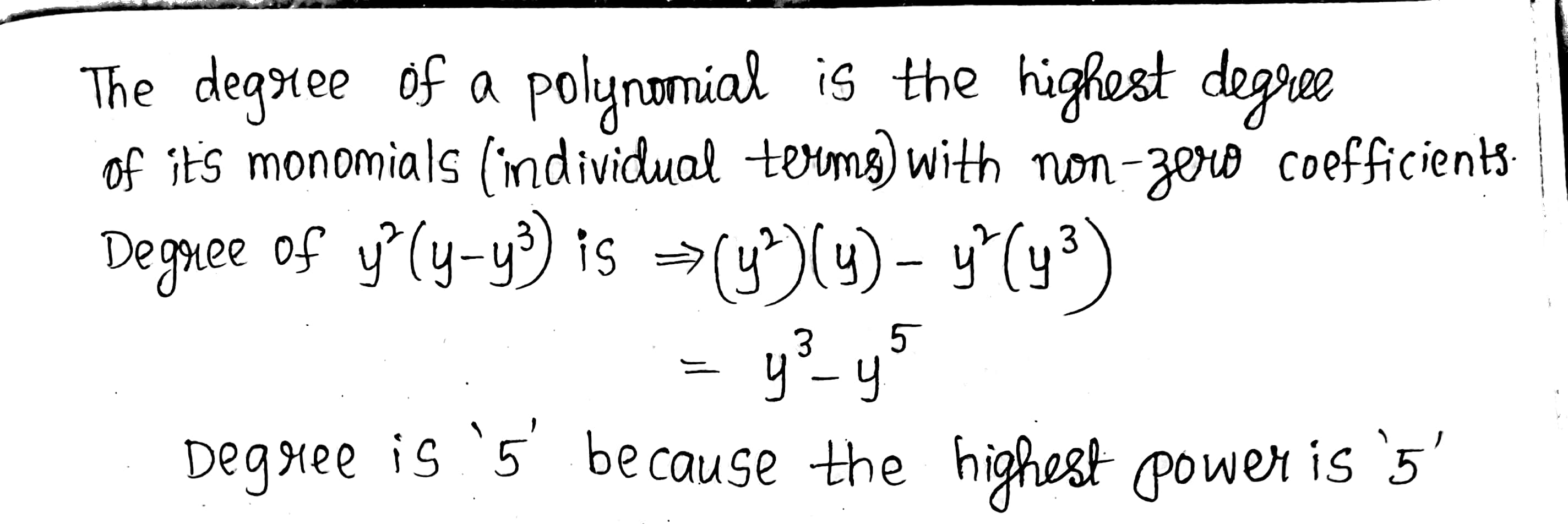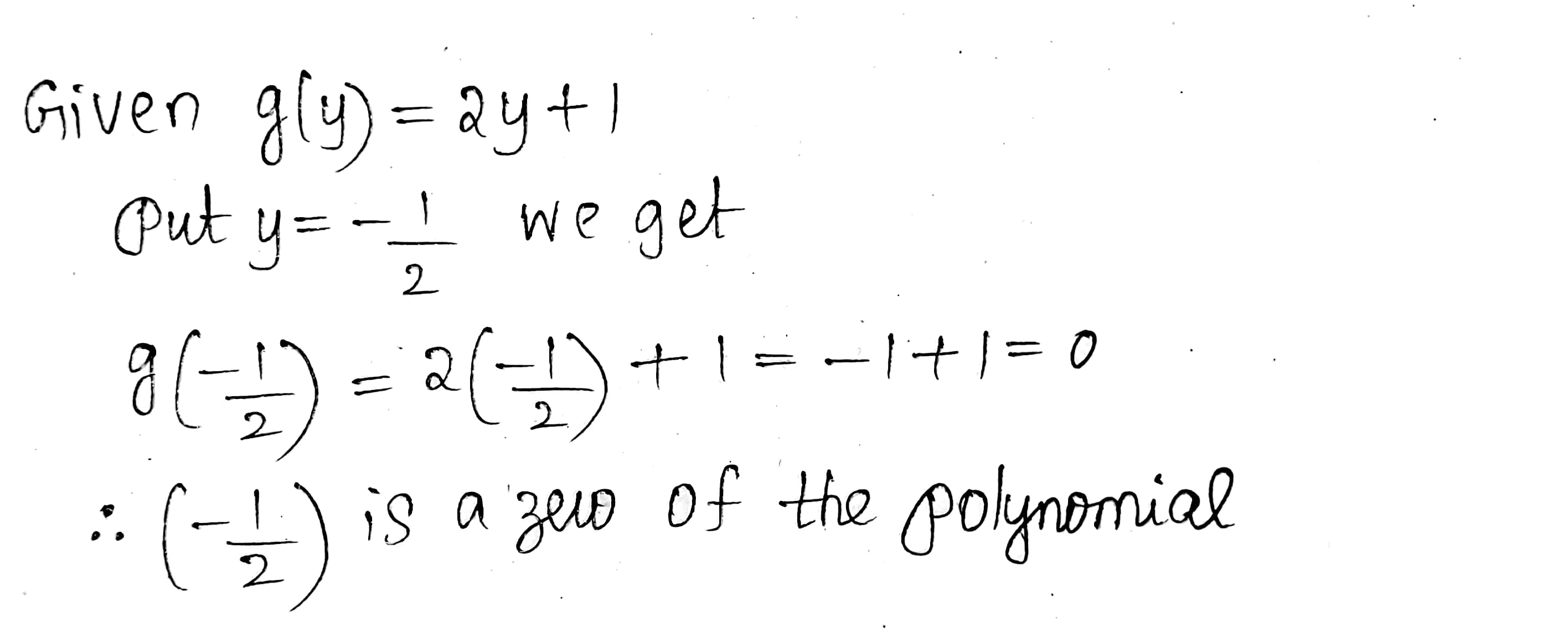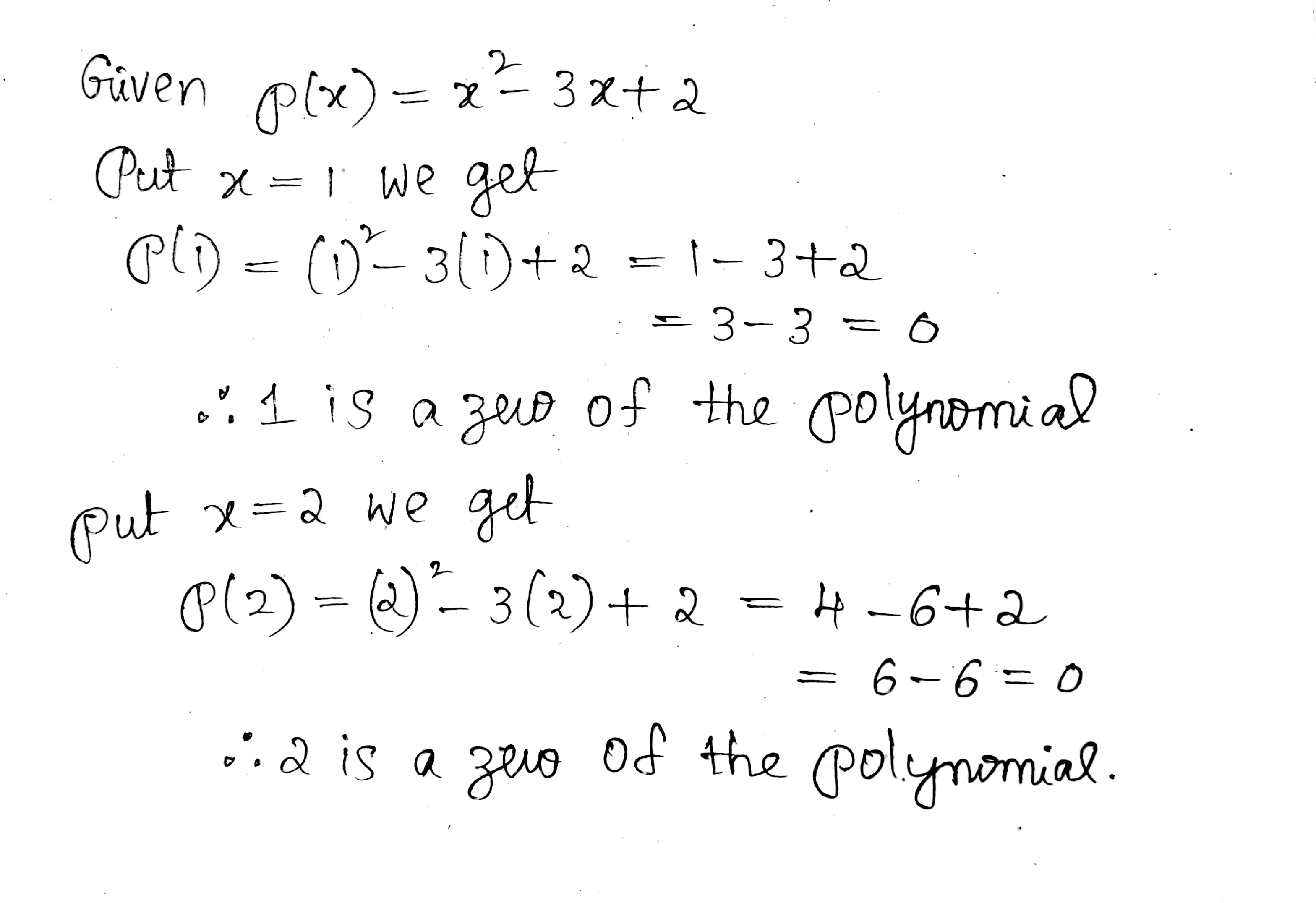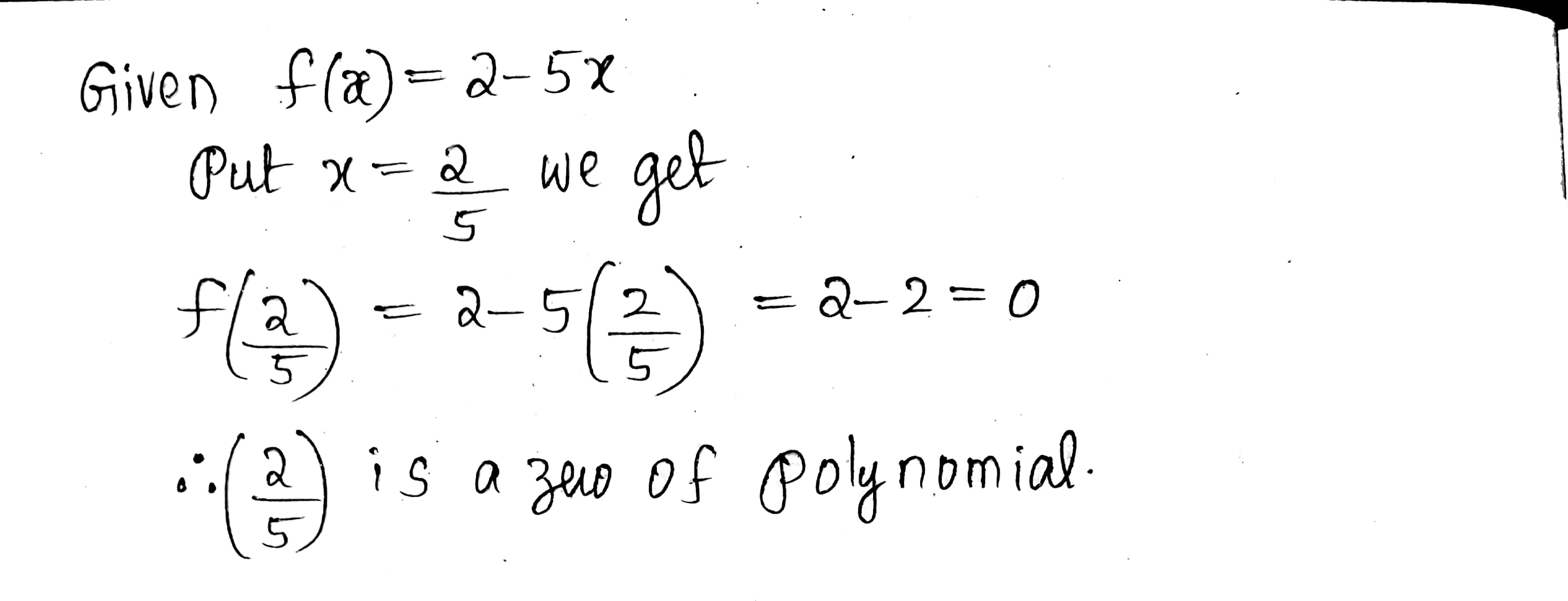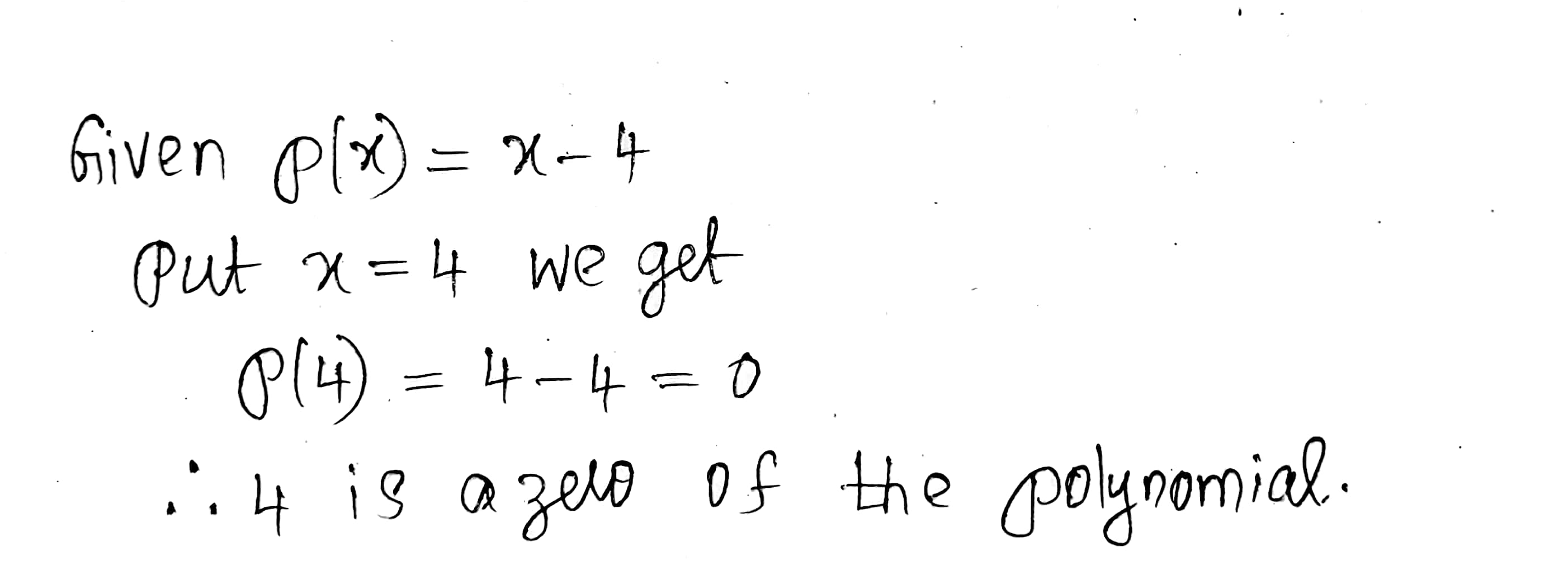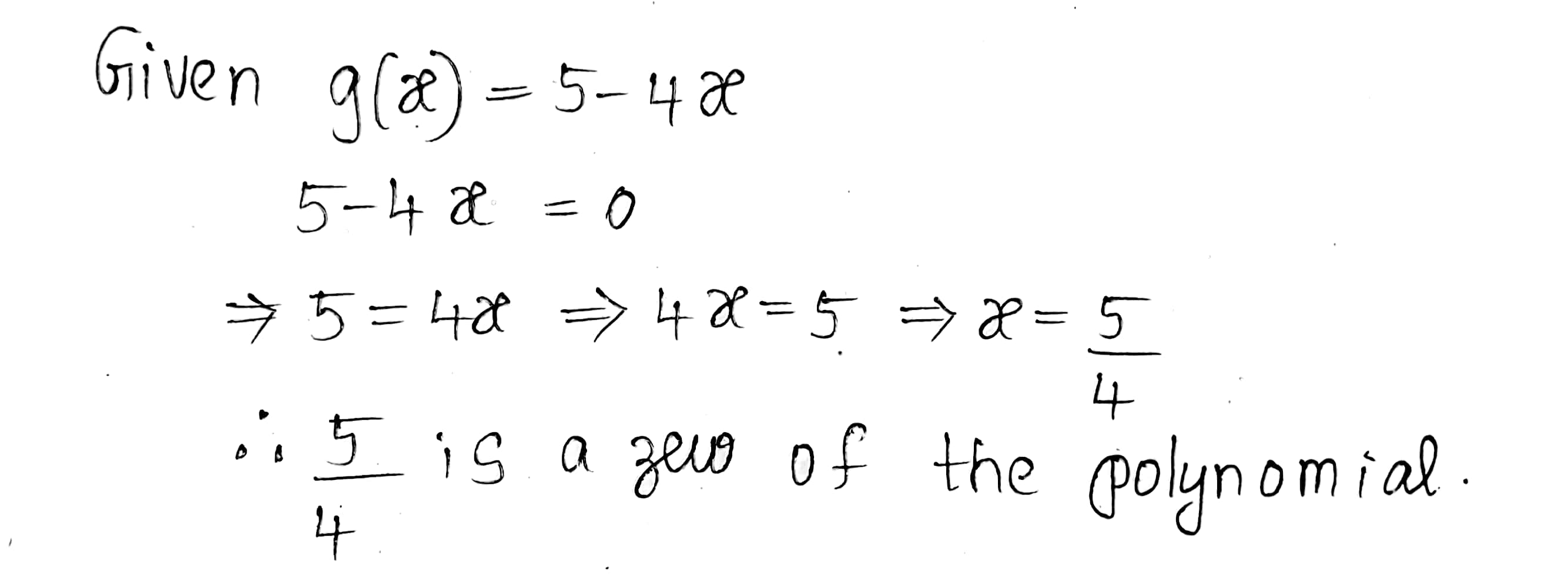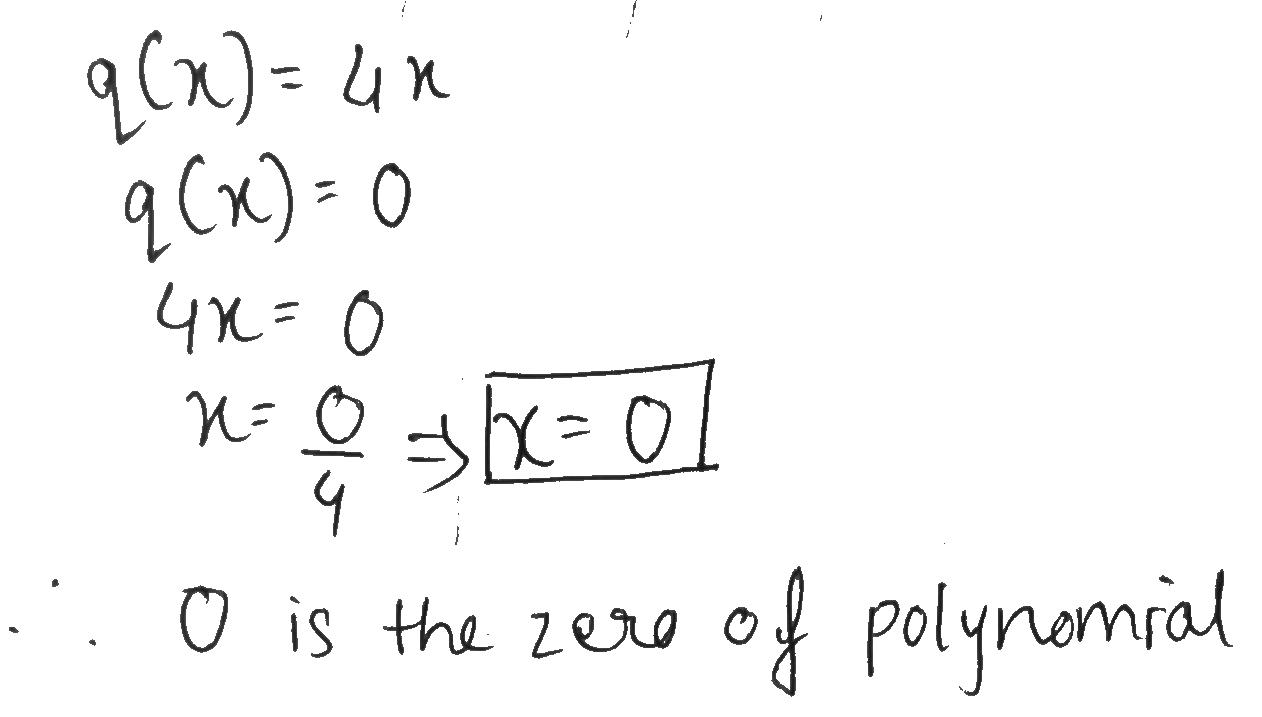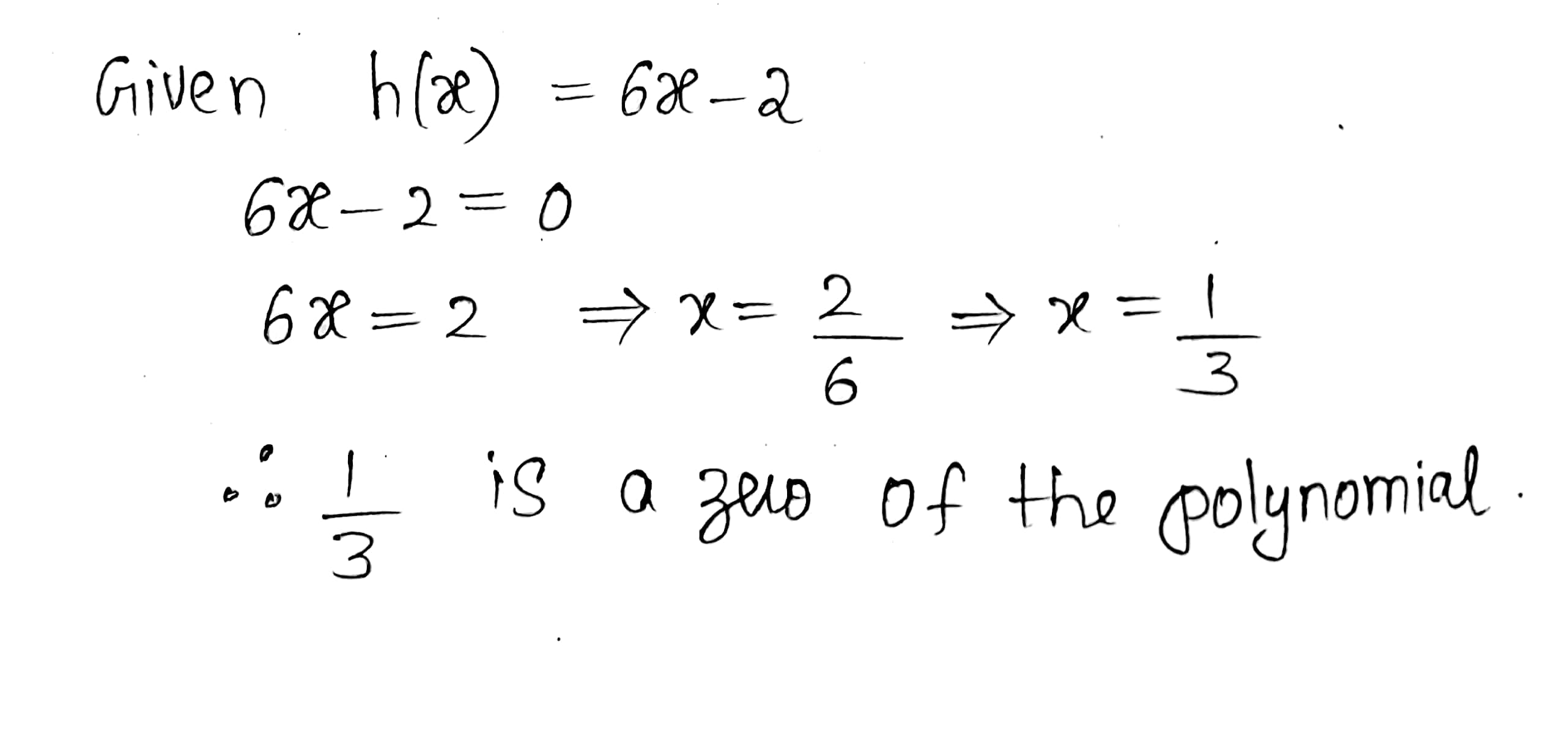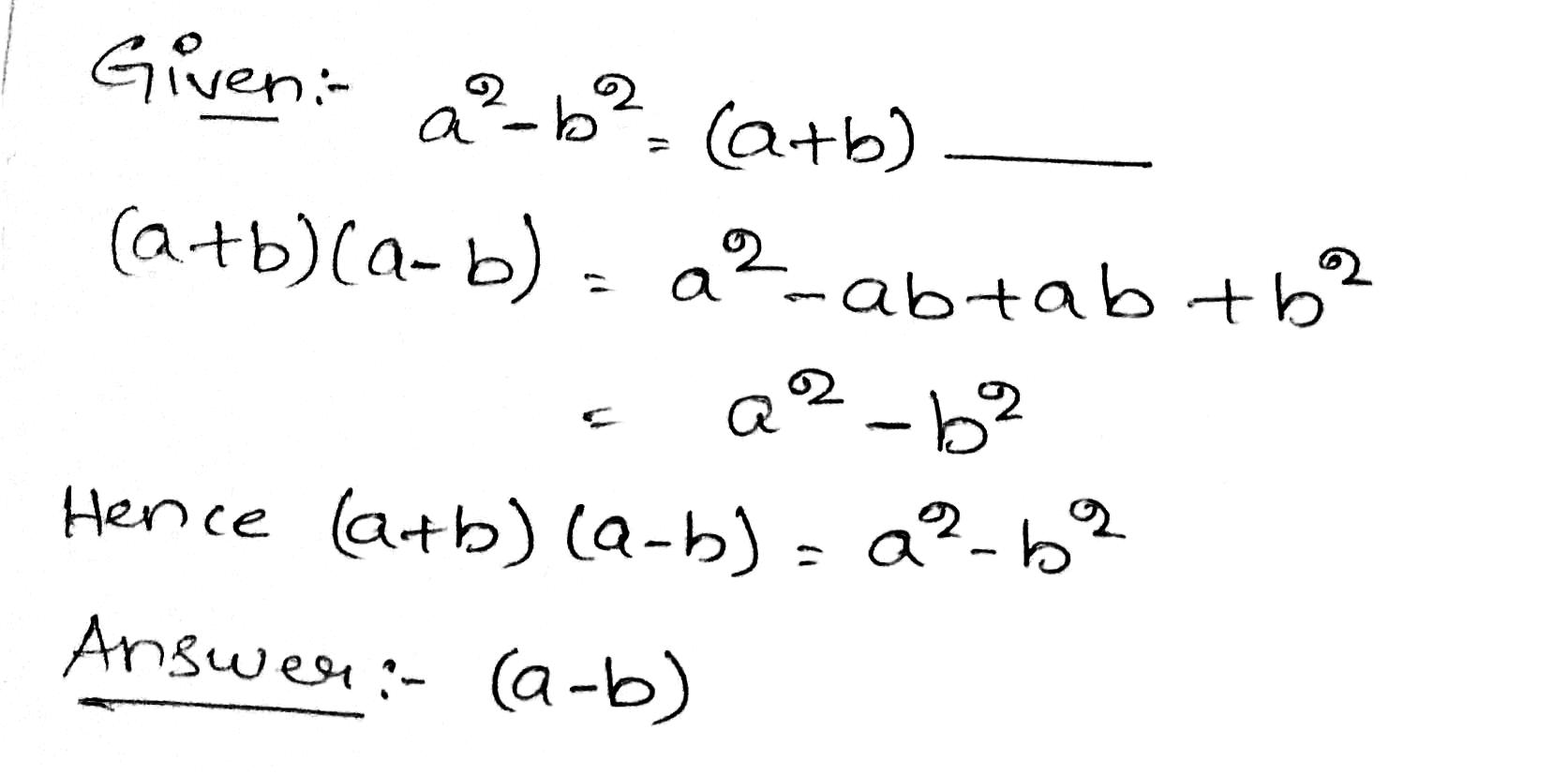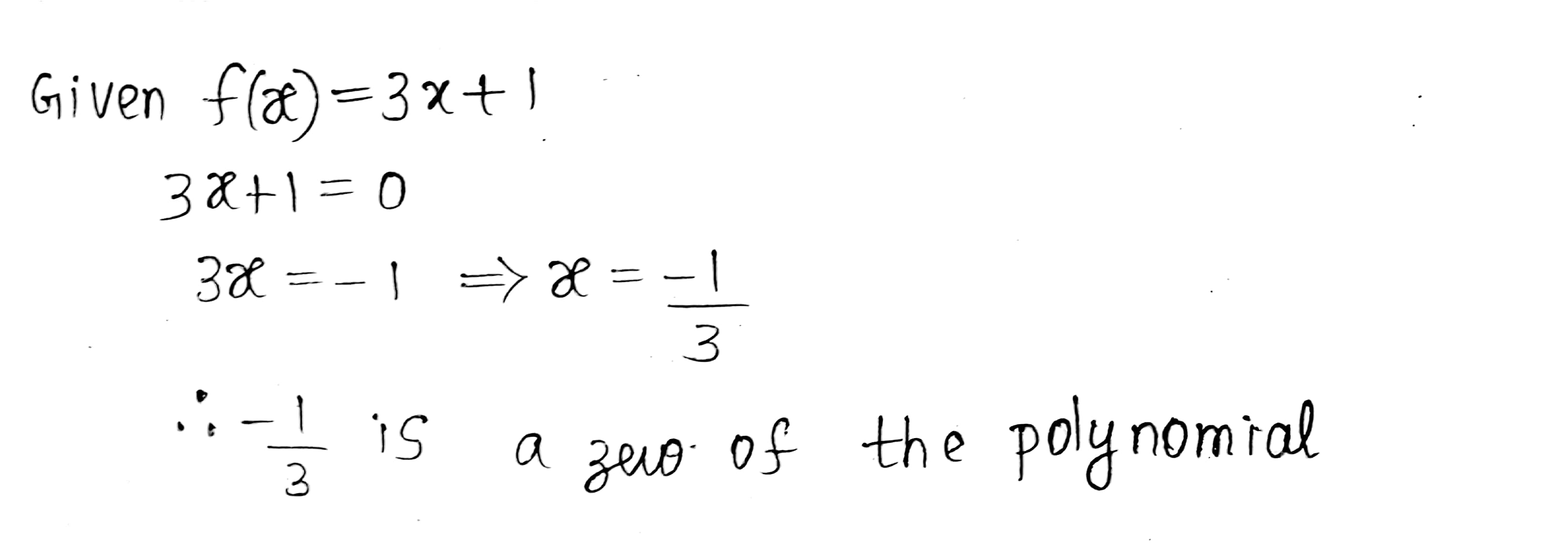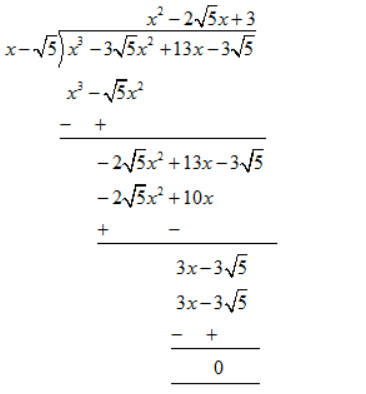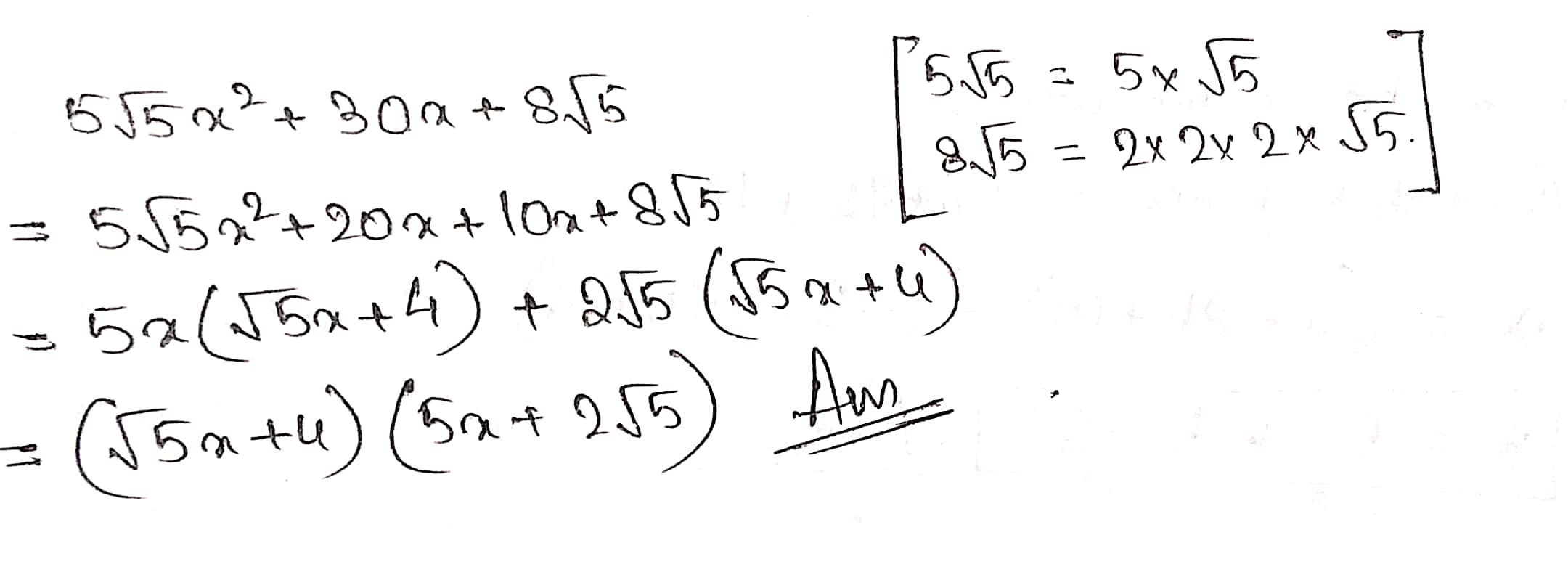Polynomials - Class 9 Maths - Extra Questions
Write the degree of the polynomial given below:
$$ y- 6y^2 + 5y^8 $$
Find the degree of the polynomial: $$7x^3+2x^2+x$$
Find the degree of the polynomial: $$5-x^2$$
Show that -1 is a zero of the polynomial $$2x^3-x^2+x+4$$.
Find the degree of the polynomial: $$3x^2-4x+2$$
Find the value of the polynomial $$p(x)=5x^2-3x+7$$ at $$x=1$$.
Find the degree of the polynomial: $$1+2x+3x^2-11x^4$$
Find the degree of the polynomial: $$4-y^2$$
Evaluate
i)$$(38)^2-(37)^2$$
ii)$$(75)^2-(74)^2$$
iii)$$(141)^2-(140)^2$$
Show that $$1$$ is not a zero of the polynomial $$4x^4-3x^3+2x^2-5x+1$$.
Show that: $$(4pq + 3q)^2 -(4pq -3q)^2 = 48pq^2$$
Show that: $$(9p - 5q)^2 + 180pq = (9p + 5q)^2$$
Use the identity $$(a + b)(a - b) = a^2 - b^2$$ to find the product of $$(x + 6)(x - 6)$$
What is the expansion of $$(4p - 3q)^2$$?
Give one example each of a binomial of degree $$35$$ and of a monomial of degree $$100$$.
Expand:$$(2t + 5)(2t - 5)$$
Use appropriate formula to compute $$185^2- 115^2$$
Use the identity $$(a + b)(a - b) = a^2 - b^2$$ to find the product of $$(3x + 5)(3x - 5)$$
Find a zero of the polynomial $$2x - 1$$
Find the degree of each of the polynomials given below
$$4 - y^{2}$$
Find the volume of the cuboid with dimensions $$(x-1), (x-2)$$ and $$(x-3)$$.
Write the degree of the following polynomial:
$$7 - x + 3x^{2}$$
Write the degree of the following polynomial:
$$7x^{3} + 5x^{2} + 2x - 6$$
Find the degree of the polynomial given below:
$$x^{5} - x^{4} + 3$$
Write the degree of the following polynomial:
$$5p - \sqrt {3}$$
Find the degree of each of the polynomials given below
$$5t - \sqrt {3}$$
Find the degree of each of the polynomials given below
$$x^{2} + x - 5$$
Verify whether the value of $$x$$ given in each case are the zeroes of the polynomial or not?
$$p(x) = ax + b; x = -\dfrac {b}{a}$$
Verify whether the values of $$x$$ given in each case are the zeroes of the polynomial or not?
$$p(x) = 5x - \pi; x = \dfrac {3}{2}$$
Verify whether the values of $$x$$ given in each case are the zeroes of the polynomial or not?
$$p(x) = x^{2} - 1; x = \pm 1$$
Fill in the blanks:
| Linear Polynomial | Zero of the polynomial |
| $$x + a$$ | $$-a$$ |
| $$x - a$$ | _____ |
| $$ax + b$$ | _____ |
| $$ax - b$$ | $$\dfrac {b}{a}$$ |
Verify whether the values of $$x$$ given in each case are the zeroes of the polynomial or not?
$$f(x) = 2x - 1, x = \dfrac {1}{2}, \dfrac {-1}{2}$$
Verify whether the value of $$x$$ given in each case are the zeroes of the polynomial or not?
$$p(x) = (x - 1)(x + 2); x = -1, -2$$
Verify whether the given value of $$x$$ is the zero of the polynomial or not?
$$p(x) = 2x + 1; x = -\dfrac {1}{2}$$
Verify whether the values of $$x$$ given in each case are the zeroes of the polynomial or not?
$$f(x) = 3x^{2} - 1; x = -\dfrac {1}{\sqrt {3}}, \dfrac {2}{\sqrt {3}}$$
Verify whether the values of $$x$$ given in each case are the zeroes of the polynomial or not?
$$p(y) = y^{2}; y = 0$$
Find the zero of the polynomial in each of the following cases.
$$f(x) = px, p\neq 0$$
Find $${196}^{2}$$
Find the zero of the polynomial in each of the following cases.
$$f(x) = x^{2}$$
Use suitable identities to find the product of : $$(x - 5)(x - 5)$$
If $$2$$ is a zero of the polynomial $$p(x) = 2x^{2} - 3x + 7a$$, find the value of $$a$$
Find the zero of the polynomial in each of the following cases.
$$f(x) = 2x - 3$$
Find the zero of the polynomial in each of the following cases.
$$f(x) = px + q, p\neq 0, pq$$ are real numbers
Find $$407\times 393$$
If $$p(t) = t^3 - 1$$, find the values of $$p(1), p(-2).$$
Find out the degree of the polynomials and the leading coefficients of the polynomials given below:
$$x^{2} - 2x^{3} + 5x^{7} - \dfrac {8}{7}x^{3} - 70x - 8$$
Find out the degree of the polynomials and the leading coefficients of the polynomials given below:
$$13x^{3} - x^{13} - 113$$
Classify the following polynomials as monomials, binomials and trinomials:
$$3x^{2}, \,3x + 2, \,x^{2} - 4x + 2, \,x^{5} - 7, \,x^{2} + 3xy + y^{2}, \,s^{2} + 3st - 2t^{2}, \, xy + yz + zx, \,a^{2}b + b^{2}c, \,2l + 2m$$
Find $$302\times 308$$
The zero of the linear polynomial $$ax + b$$ is:
Find $$93\times 104$$
Write the degree of the following polynomial. $$12-x+4x^3$$
Evaluate the following by using the identity $$(a-b)^2=a^2+b^2-2ab$$ :$$2.8^{2}$$
Write the degree of the following polynomial: $$5y+\sqrt{2}$$
Evaluate the following by using the identities:
$$9.7\times 9.8$$.
Find out the following squares by using the identities:
$$(3x + 5)^{2}$$
Find out the degree of the polynomials and the leading coefficients of the polynomials given below:
$$-77 + 7x^{2} - x^{7}$$
Find out the following squares by using the identities:
$$(a - 5)^{2}$$
Find out the degree of the polynomials and the leading coefficients of the polynomials given below:
$$-181 + 0.8y - 8y^{2} + 115y^{3} + y^{8}$$
Write the degree of $$4-3x^2$$
Find the zeros of the following polynomials.$$p(x)=4x-1$$
Find the root of $$x-3=0$$
Classify the following polynomial based on their degree.$$3x^2+2x+1$$
Classify the following polynomial based on their degrees:
$$2x$$
Find the degree of given polynomial :$$4x^3-1$$
Find the root of −9x=0−9x=0
Classify the following polynomial based on their degrees:$$y+3$$
Classify the following polynomial based on their degrees:$$4x^3$$
Verify Whether the following are roots of the polynomial equations indicated against them.
$$x^2-5x+6=0; (x=2, 3)$$
Classify the following polynomial based on their degrees:$$y^2-4$$
Verify Whether the following are roots of the polynomial equations indicated against them.
$$x^2+4x+3=0; (x=-1, 2)$$
Find the roots of the following polynomial equations.
$$x-6=0$$
Classify the following polynomials based on their degree.
(i)$$ p(x)=3$$ (ii) $$p(y)=\frac{5}{2}y^2+1$$ (iii)$$p(x)=2x^3-x^2+4x+1$$ (iv)$$ p(x)=3x^2$$
(v)$$ p(x)=x+3$$ (vi) $$p(x)=-7$$ (vii) $$p(x)=x^3+1$$ (viii) $$p(x)=5x^2-3x+2$$ (ix)$$p(x)=4x$$
(x) $$p(x)=\dfrac {3}{2}$$ (xi) $$p(x)=\sqrt{3}x+1$$ (xii) $$p(y)=y^3+3y$$
(v)$$ p(x)=x+3$$
(x) $$p(x)=\dfrac {3}{2}$$
Find the roots of the following polynomial equations.
$$2x+1=0$$
What number should replace $$n$$ such that $$3(n+6)=(3\times 5)+(3\times 6)$$.
$${(\dfrac {\sqrt {2}}{3}x+2\sqrt {5}y)}^{2} =$$
Determine the degree of the the polynomial.
$$(3x - 2)(2x^3 + 3x^2)$$
Solve $$2{y}^{3}+{y}^{2}-2y-1$$
What is the value if a?
$$8=5+2a$$
Determine by substitution, if $$7$$ is a root of $$3x - 5 = 16$$.
Write the degree of each of the following polynomials:
$$\left( i \right)\,\,5{x^3} + 4{x^2} + 7x$$
$$\left( {ii} \right)\,\,4 - {y^2}$$
$$\left( {iii} \right)\,\,5t - \sqrt 7 $$
$$\left( {iv} \right)\,\,3$$
solve:-$${\left( {a + b} \right)^2} = $$
Verify that whether $$2$$ is a zero of the polynomial $$x^{3}+4x^{2}-3x-18$$.
For $$\dfrac{x^3 + 2x + 1}{5} - \dfrac{7}{2} x^2 - x^6$$, write
i) the degree of the polynomial
ii) the coefficient of $$x^3$$
iii) the coefficient of $$x^6$$
iv) the constant term
Find the zeroes of polynomial $$p\left( x \right) =6{ x }^{ 2 }-3$$
If $${(a + b)^2} = 4ab$$ then prove that $$a=b$$
Solve $$(a+b)^3-a^3-b^3$$
Use the identity and expand the following $${(2x+y)}^{2}$$
If $${(a + b)^2} = 4ab$$, then prove that $$a=b$$.
Solve:
$${\left( {4a + 36} \right)^2} - {\left( {4a - 36} \right)^2} + 48ab$$
The zeroes of the polynomial $$2x+3$$ is:
$$(a^{2}-b^{2})^{2}=?$$
Solve: $$6xy - 4y + 6 - 9x$$
If $$a-b=5$$ and $$a^2+b^2=53$$, then find the value of $$ab$$.
Evaluate
$$(5x+2y)^{2}+(5x-2y)^{2}$$
Solve :
$$4x^2 - 9y^2 $$=0
If $$a = 6 - \sqrt 35$$. find the value of $$a^2 + \dfrac{1}{a^2}$$.
Simplify $${a^2} + {b^2} = ?$$
Expand using identities:
$${\left( {3x - 5y} \right)^2}$$
$$(a+b)^2=?$$
Simplify $$(a^2-b^2)^2$$.
Solve:
$${\left( {a + b} \right)^2} $$
Write the degree of the following polynomials.
(i) $$p + p^3 + p^7$$
(ii) $$a + a^3 - a^0$$
(iii) $$m + a^4m + a^5m^3 - m^2 - a^4m^7$$
Prove if $${\cot}\theta + \dfrac{1}{{{{\cot }}\theta }} = 2$$ then $${\cot ^2}\theta + \dfrac{1}{{{{\cot }^2}\theta }} = 2$$
Write the numerical coefficients of the terms (other than constants) in each of the following algebraic expressions.
(a) $$5ab^2c$$
(b) $$3 - 4y^2$$
(c) $$-3xyz + 5x^2 - 6$$
(d) $$2(l + b + h)$$
Find $$\left(3x+4y\right)^{2}$$
Check whether $$\left(-\dfrac{m}{l}\right)$$ is a zero of the polynomial $$p(x)=lx+m$$
The degree of $${x^3} - 3{x^2} + 1$$
Solve: $$3x^2-2x+\dfrac 13=0$$
Find the degree of the given polynomials.
$$x^{o}$$
Simplify $${\left( {2x + \dfrac{1}{{3y}}} \right)^2} - {\left( {2x - \dfrac{1}{{3y}}} \right)^2}$$
Solve : $$x^2+x-12$$
Solve: $$ (205)^2 - (195)^2 $$
Find the zero of the polynomial in each of the following
$$p(x)=3x-2$$
Solve : $$(2xy+5y)^2$$
Solve
$$4u^2+8u=0$$
Find the zero of the polynomial
$$p(x)=x-5$$
Select a suitable identity and find the product of $$(m^{2}-n^{2})(m^{2}+n^{2})$$
Find the degree of the given polynomials.
$$2p-\sqrt{7}$$
Write a polynomial of degree 5 using variable x.
select a suitable identity and find the following products
$$(7d-9e)(7d-9e)$$
Evaluate the value of $$\left(101\right)^{2}$$by using suitable identity
Find the degree of the given polynomials.
$$\sqrt{2}m^{10}-7$$
Find the degree of the given polynomials.
$$x^{2}$$
Find the degree of the given polynomials.
$$7y-y^{3}+y^{5}$$
select a suitable identity and find the following products
$$(3k+4l)(3k+4l)$$
select a suitable identity and find the following products
$$(2b-a)(2b+c)$$
If $$P(x) = 5x^7-6x^5+7x-6$$ then degree of $$P(x)$$?
Write the highest degree of $$2\dfrac{2}{3}{x}^{3}-5{x}^{2}+3x+2$$
select a suitable identity and find the following products
$$(kl-mn)(kl+mn)$$
select a suitable identity and find the following products
$$(6x+5)(6x+6)$$
Prove that :
$$(3x-2y)^{2}+24xy=(3x+2y)^{2}$$
Solve:
$$\dfrac{9x}{8}+1=10$$
If $$8+2\sqrt{15}=(a+b)^{2}, $$ Find a and b.
select a suitable identity and find the following products
$$(3t+9s)(3t-9s)$$
Write the degree of $$x$$ in $$x^{3}-3.$$
Find the degree of the polynomial $${ x }^{ 5 }-{ x }^{ 4 }-x+5$$
Solve: $$x+5=2x+3$$
Verify whether the following are zeroes of the polynomial, indicated against them.
$$p\left( x \right) ={ x }^{ 2 }-1,x=1,-1$$
Verify whether the following are zeroes of the polynomial, indicated against them.
$$p\left( x \right) ={ x }^{ 2 },x=0$$
Find the zeros of the polynomial $${ 2x }^{ 2 }+{ 5x }^{ 2 }+2x.$$
Solve:$$8x-9=10$$
Find the zeroes of the polynomial:$$3x^2-x-4$$.
Verify whether the following are zeroes of the polynomial, indicated against them.
$$p\left( x \right) =3{ x }^{ 2 }-1,x=-\dfrac { 1 }{ \sqrt { 3 } } ,\dfrac { 1 }{ \sqrt { 3 } } $$
Verify whether the following are zeroes of the polynomial, indicated against them.
$$p\left( x \right) =3x+1,x=-\dfrac { 1 }{ 3 } $$
Determine the degree of the following polynomial.
$$-\dfrac{1}{2}x+3$$.
Identify constant, linear, quadratic, cubic and quartic polynomial from the following.
$$-13$$.
Find the zero of the polynomial $$p(x)=x-5$$.
$$p(x)=x^2+3x+4$$ Find $$p(3)$$
Verify whether the following are zeroes of the polynomial, indicated against them.
$$p\left( x \right) =5x-\pi ,x=\dfrac { \pi }{ 5 } $$
Find $$4{ x }^{ 2 }{ y }^{ 2 }+\dfrac { 1 }{ 4{ x }^{ 2 }{ y }^{ 2 } } ,$$ if $$\left( 2xy+\dfrac { 1 }{ 2xy } \right) =1.6.$$
If $$x+\dfrac{1}{x}=4$$, find the value of
(i) $$x^{2}+\dfrac{1}{x^{2}}$$(ii) $$x^{4}+\dfrac{1}{x^{4}}$$
Verify whether the following are zeroes of the polynomial, indicated against them:
$$p\left( x \right) =2x+1,x=\dfrac { 1 }{ 2 } $$.
Expand :-$$(ax+by)^{2}$$
Verify whether the following are zeroes of the polynomial, indicated against them.
$$p\left( x \right) =lx+m,x=-\dfrac { m }{ l } $$
Write the degree of each of the following polynomials:
$$3x - 15$$
Write down the degree of following polynomials in x:$$1-x^2$$
Determine the degree of the following polynomial.
$$-8$$.
Write the degree of the following polynomials:
$$\dfrac{2}{5}x^3-7x^2-\dfrac{1}{2}x+3$$
Write the degree of the polynomial $$ P(x)=2 x^{2}-x^{3}+5 $$.
Write the degree of the polynomial $$f(x)=x^2-3x^3+2$$.
For each of the following monomials , write its degree :
$$7y$$
The expression $$13+90$$ is a _____
Write the degree of each polynomial given below:
$$y-6y^2 +5y^8$$
Write the degree of the polynomial for the following .
$$ ax^{7} + bx^{9} $$ (a,b are constant.)
Write the degree of the given polynomial .
$$x^{0}$$
Write the degree of the given polynomial .
$$x^{2}$$
Write the degree of each polynomial given below:
$$x\ y\ z-3$$
Write the degree of each polynomial given below:
$$xy+yz^2 -zx^3$$
Write the degree of the following polynomial:
$$ 3 $$.
Write the degree of the polynomial for the following .
7
Write the degree of the given polynomial .$$\sqrt{5}$$
Write the degree of the following polynomial:
$$3 + 4t^{2}$$.
Evaluate:
$$(3x-4y)(3x+4y)(9x^2+16y^2)$$ is equal to $$81x^4-256y^4$$.
If true then enter $$1$$ and if false then enter $$0$$.
Evaluate:
$$(3-2x)(3+2x)(9+4x^2)$$ is equal to $$81-16x^4$$.
If true then enter $$1$$ and if false then enter $$0$$.
Evaluate:
$$(a+b)(a-b)(a^2+b^2)$$ is $$a^4-b^4$$.
If true, then enter $$1$$ and if false, then enter $$0$$.
Write the degree of each polynomial given below:
$$ x^2 - 6x^3 + 8 $$
Evaluate:
$$(2a-b)(2a+b)(4a^2+b^2)$$ is $$16a^4-b^4$$.
If true, then enter $$1$$ and if false, then enter $$0$$.
Evaluate using expansion of $$(a+b)^2$$ or $$(a-b)^2$$:
$$(45)^2$$
Evaluate using expansion of $$(a+b)^2$$ or $$(a-b)^2$$:
$$(20.7)^2$$ is 428.49
If true then enter $$1$$ and if false then enter $$0$$
If $$1$$ is the zero of $$f(x)=kx^2-3kx+3k-1$$ then the value(s) of $$k$$ is
State whether True or False: 0 for true, 1 for false$$\displaystyle (2\sqrt{3}+3\sqrt{2})^{2} = 12+ 18 + 12\sqrt{6} = 30+ 12\sqrt{6}$$
Evaluate the following by using identities:$$(97)^2$$
If $$3$$ is the zero of $$f(x)=x^4-x^3-8x^2+kx+12$$ then the value of $$k$$ is equal to
If $$g(x)=\cfrac{{x}^{3}-ax}{4}$$ and $$g(2)=\cfrac{1}{2}$$, what is the value of $$g(4)$$?
Find $$p(0), p(1)$$ and $$p(2)$$ for each of the following polynomials:
(i) $$p(y)=y^2-y+1$$
(ii) $$p(t)=2+t+2t^2-t^3$$
(iii) $$p(x)=x^3$$
(iv) $$p(x)=(x-1)(x+1)$$
Find the value of the polynomial $$5x-4x^2+3$$ at
(i) $$x=0$$
(ii) $$x=-1$$
(iii) $$x=2$$
Find the zero of the polynomial in each of the following cases:
(i) $$p(x)=x+5$$
(ii) $$p(x)=x-5$$
(iii) $$p(x)=2x+5$$
(iv) $$p(x)=3x-2$$
(v) $$p(x)=3x$$
(vi) $$p(x)=ax, a\neq 0$$
(vii) $$p(x)=cx+d, c\neq 0, c, d$$ are real numbers.
Write the degree of each of the following polynomials:
(i) $$5x^3+4x^2+7x$$
(ii) $$4-y^2$$
(iii) $$5t-\sqrt 7$$
(iv) $$3$$
Which of the following expressions are polynomials in one variable and which are not? State reasons for your answer.
(i) $$4x^2-3x+7$$
(ii) $$y^2+\sqrt 2$$
(iii) $$3\sqrt t+ t\sqrt 2$$
(iv) $$ y+\displaystyle\frac{2}{y}$$
(v) $$x^{10}+y^3+t^{50}$$
Obtain all other zeroes of $$3x^4 +6x^3-2x^2-10x-5$$, if two of its zeroes are $$\sqrt{\dfrac{5}{3}}$$ and $$-\sqrt{\dfrac{5}{3}}$$.
Use the identity $$(x+a)\;(x+b)=x^2+(a+b)x+ab$$ to find following products.
(i) $$(x+3)\;(x+7)$$
(ii) $$(4x+5)\;(4x+1)$$
(iii) $$(4x-5)\;(4x-1)$$
(iv) $$(4x+5)\;(4x-1)$$
(v) $$(2x+5y)\;(2x+3y)$$
(vi) $$(2a^2+9)\;(2a^2+5)$$
(vii) $$(xyz-4)\;(xyz-2)$$
Simplify:
(i) $$(a^2-b^2)^2$$
(ii) $$(2x+5)^2-(2x-5)^2$$
(iii) $$(7m -8n)^2 + (7m + 8n)^2$$
(iv) $$(4m+5n)^2+ (4n+5m)^2$$(v) $$(2.5p-1.5q)^2-(1.5p-2.5q)^2$$
(vi) $$(ab+bc)^2-2ab^2c$$
(vii) $$(m^2-n^2m)^2+2m^3n^2$$
(vi) $$(ab+bc)^2-2ab^2c$$
(vii) $$(m^2-n^2m)^2+2m^3n^2$$
Find and correct errors of the following mathematical expressions:
$$(z+5)^{2} = z^{2} +25 $$
Find the square of the following numbers
(i) $$32 $$
(ii) $$35$$
(iii) $$86$$
(iv)$$ 93$$
(v) $$71$$
(vi) $$46$$
Using $$a^2-b^2=(a+b)(a-b)$$, find
(i) $$51^2-49^2$$
(ii) $$1.02^2-0.98^2$$
(iii) $$153^2-147^2$$
(iv) $$12.1^2-7.9^2$$
Find and correct errors of the following mathematical expressions:ind and correct error
$$ (3x+2) ^{2} = 3x^{2} +6x+4 $$
Find and correct errors of the following mathematical expressions:
$$ (y-3)^{2} = y^{2} -9 $$
If the zeroes of the polynomial $$x^3- 3x^2 + x + 1$$ are $$a- b,\ a,\ a + b$$ find $$a$$ and $$ b$$.
Find the degree of each of the following:
(i) $$3{ x }^{ 2 }+2x+1$$
(ii) $$x+1$$
(iii) $$2y+3-5{ y }^{ 3 }$$
(iv) $${ u }^{ 7 }-3{ u }^{ 3 }+2u$$
(v) $${ y }^{ 4 }+2{ y }^{ 3 }-3{ y }^{ 2 }+8$$
Find the product: $$(a+3)(a+5)$$
Find the product of $$(a-8)(a+2)$$
Compute $$54 \times 46$$
Find the product:$$(3t+1)(3t+4)$$
Compute $$(4.9)^2$$.
Find the product of $$(a-6)(a-2)$$
Expand:$$(xy+8)(xy-8)$$
Expand:$$(2x+3y)(2x-3y)$$
Find $$(2x + 3y)^2$$.
Using the identity $$(a + b)^2 = a^2 + 2ab + b^2$$, simplify $$(a+6)^2$$
Using the identity $$(a + b)^2 = a^2 + 2ab + b^2$$, simplify $$(2p+3q)^2$$
Using the identity $$(a + b)^2 = a^2 + 2ab + b^2$$, simplify $$(x^2+5)^2$$
Is it possible to imitate the case of the identity $$(x+a)(x+b) = x^2+(a+b)x+ab$$, and get a similar expression for the product $$(x + a)(x + b)(x + c)$$?
Using the identity $$(a + b)^2 = a^2 + 2ab + b^2$$, simplify $$(3x+2y)^2$$
Evaluate:$$103\times 96$$
Evaluate:$$102\times 106$$
Evaluate: $$53\times 55$$
Evaluate $$(34)^2$$ by using the identity $$(a + b)^2 = a^2 + 2ab + b^2$$.
Evaluate: $$34\times 36$$
Evaluate $$(10.2)^2$$ by using the identity $$(a + b)^2 = a^2 + 2ab + b^2$$
Using the identity $$(a - b)^2 = a^2 - 2ab + b^2$$ compute $$(p^2 - q^2)^2$$;
Evaluate $$(49)^2$$ using the identity $$(a - b)^2 = a^2 - 2ab + b^2$$.
Using the identity $$(a - b)^2 = a^2 - 2ab + b^2$$ ,compute $$(5a - 4b)^2$$;
Evaluate $$(41)^2$$ by using the identity $$(a + b)^2 = a^2 + 2ab + b^2$$
Evaluate $$(59)^2$$ using the identity $$(a - b)^2 = a^2 - 2ab + b^2$$
Using the identity $$(a -b)^2 = a^2- 2ab + b^2$$ compute $$(x- 6)^2$$
Using the identity $$(a - b)^2 = a^2 - 2ab + b^2$$ compute $$(3x -5y)^2$$
Evaluate $$(53)^2$$ by using the identity $$(a + b)^2 = a^2 + 2ab + b^2$$
Evaluate $$(9.8)^2$$ by using the identity $$(a - b)^2 = a^2 - 2ab + b^2$$.
Use the identity $$(a + b)(a - b) = a^2 - b^2$$ to find the products of $$(2a + 4b)(2a - 4b)$$
Evaluate $$55\times 45$$ using suitable identity.
Evaluate $$8.5 \times 9.5$$ using suitable standard identity.
Find the product of $$(p+2)(p-2)(p^2+4)$$
Evaluate $$(198)^2$$ using the identity $$(a - b)^2 = a^2 - 2ab + b^2$$
Use the identity $$(a + b)(a - b) = a^2 - b^2$$ to find the product of $$(\dfrac{2x}{3} + 1)(\dfrac{2x}{3}- 1)$$
Evaluate $$102\times 98$$ using suitable standard identity.
Evaluate $$33\times 27$$ using suitable identity.
Find the product of $$(2a+3)(2a-3)(4a^2+9)$$
Find the product : $$(x-3)(x+3)(x^2+9)$$
Find the product of $$(2x-y)(2x+y)(4x^2+y^2)$$
Expand: $$(x-1)(x + 1)(x^2 +1)(x^4+1)$$
Use appropriate formula to compute $$107\times 93$$
Use appropriate formula to compute $$1008\times 992$$
Expand: $$(2x-y)(2x + y)(4x^2 +y^2)$$
Use appropriate formula to compute $$(103)^2$$
Find the product of $$(\frac{1}{2}m-\frac{1}{3})(\frac{1}{2}m+\frac{1}{3})(\frac{1}{4}m^2+\frac{1}{9})$$
Simplify: $$(x + y)^2 + (x - y)^2$$;
Find the product : $$(2x-3y)(2x+3y)(4x^2+9y^2)$$
Use the appropriate formula to compute $$(96)^2$$.
Express the given expression $$(x + 98)(x + 102)$$ as difference of two squares
Find the degree of the following polynomial.
$$x^{3} + 17x - 21 - x^{2}$$
Simplify: $$(x + y)^2 \times (x - y)^2.$$
Find the product $$\left( 3+\sqrt { 2 } \right) \left( 3-\sqrt { 2 } \right) $$.
Expand: $${ \left( \sqrt { 5 } +\sqrt { 2 } \right) }^{ 2 }$$.
Find the degree of the following polynomial.
$$x^{3} + 2x^{2} - 5x - 6$$
Find the degree of the following polynomial.
$$x^{2} - 9x + 20$$
Find the degree of the following polynomial.
$$2x + 4 + 6x^{2}$$
Simplify: $${ \left( \sqrt { 2 } x-2y \right) }^{ 2 }$$.
Simplify: $${ (3m+5n) }^{ 2 }-{ (2n) }^{ 2 }$$
Find $${204}^{2}$$
Verify whether $$2$$ and $$1$$ are zeroes of the polynomial $$x^{2} - 3x + 2$$.
Use suitable identities for the following product :
$$(1 + x)(1 + x)$$
The degree of monomial $$2$$ is?
Use suitable identity to find the following product:
$$(x + 5)(x + 2)$$
Find the degree of the following polynomial.
$$\sqrt {3}x^{3} + 19x + 14$$
Use suitable identities to find the product :
$$\left (x^{2} + \dfrac {1}{x^{2}}\right )\left (x^{2} -\dfrac {1}{x^{2}}\right )$$
Using the identity $$(x + a)(x + b) = x^{2} + (a + b)x + ab$$, find the values of the following:
$$55\times 56$$
If $$p(x) = x^{2} - 5x - 6$$; find the value of $$p(3)$$
Find $${987}^{2}-{13}^{2}$$
Evaluate the following by using the identities:
$$28\times 32$$
Evaluate the following by using the identities:
$$96\times 104$$
Evaluate the following by using the identities:
$$(12.1)^{2} -(79)^{2}$$
Using the identity $$(x + a)(x + b) = x^{2} + (a + b)x + ab$$, find the value of $$95\times 103$$
Evaluate the following by using the identities:
$$81\times 79$$
Evaluate the following by using the identities:
$$53\times 47$$
Verify Whether the following are roots of the polynomial equations indicated against them.
$$x^3-2x^2-5x+6=0; (x=1, -2 \ and \ 3)$$
Find the zeros of the following polynomial:$$p(x)=2x -3$$
Write the degree of the following polynomial:5
Expand the following using identities
$$(2a + 3b)^2$$
Find the zero of the following polynomial equation.
$$11x+1=0$$
Verify Whether the following are roots of the polynomial equations indicated against them.
$$x^3-2x^2-x+2=0; (x=-1, 2 \ and \ 3)$$
Using the identity $$(x + a)(x + b) = x^{2} + (a + b)x + ab$$, find the values of the following:
$$501\times 505$$
For polynomial $$P(x)=6x^3+29x^2+44x+21$$ find $$P(-2).$$
Expand the following with suitable identity
$$(-4x+2yz)^2$$.
Find the degree of each of the polynomials given below
(i) $$
x^5 - x^4 + 3
$$
(ii) $$
x^2 + x - 5
$$
(iii) $$5$$
(iv) $$
3x^6 + 6y^3 - 7
$$
(v) $$
4 - y^2
$$
(vi) $$
5t - \sqrt 3
$$
Find the number of real zeros of the following polynomial $$p(x)=x^2-2x$$
Find the value of a given polynomial at the indicated value of variables.
$$p(t) = 4t^{4} + 5t^{3} - t^{2} + 6$$ at $$t = 0$$
Expand $$9{(x+a)}^{2}-4{x}^{2}$$
Determine the number of real and imaginary roots of the following polynomial $$a{x}^{2}+b{x}^{2}+cx+d=0$$
Without actual calculations, find the value of the following expression:
$$28^{2} - 27^{2}$$.
Find the value of a given polynomial at the indicated value of variables.
$$p(x) = 5x^{2} - 3x + 7$$ at $$x = 1$$.
Find the value of a given polynomial at the indicated value of variables.
$$q(y) = 3y^{2} -4y\sqrt{11} +8\sqrt{11}$$ at $$y =2$$
Simplify the following using idenitive $$(1025)^{2}-(975)^{2}$$
Find the zero of the polynomial in each of the following in each of the following cases:
$$p(x)=ax,a\neq0 $$
Evaluate the following using suitable identity :
(a) $${ \left( 10x-1 \right) }^{ 2 }$$
(b) $${ \left( x-8y \right) }^{ 2 }$$
(b) $${ \left( x-8y \right) }^{ 2 }$$
Factorise:
$$25a^{2} - 9b^{2}$$
Evaluate the following:
$${ \left( 7x-2y \right) }^{ 2 }$$
$${ \left( 3x+7y \right) }^{ 2 }$$
Find the zero of the polynomial in each of the following in the following case:
$$p(x)=x+5$$
Find the zero of the polynomial in the following case:
$$p(x)=cx+d,c\neq d$$ are real numbers.
Verify whether the values of $$x$$ given in each case are the zeros of the polynomial or not?
$$p(x)=x^{2}-1;x=+1$$
Find the zero of the polynomial in each of the following in each of the following cases:
$$p(x)=x-5$$
Find the value of k, if $$x=2$$ is a zero of $$p(x)=x^2+5x+2k$$.
Evaluate: $$\dfrac {198\times 198-{102}\times 102}{96}$$
Find the zero of the polynomial in each of the following cases :
$$p(x)=cx+d, c\neq 0, c, d$$ are real numbers.
Find the square of : $$2a +b$$
Evaluate $$(a+b)(a-b)+(b+c)(b-c)+(c+a)(c-a)$$.
Find the number of zeroes of the quadratic $${x}^{2}+7x+10$$ and verify the relationship between the zeroes and the the co-efficients.
Find the roots of: $$x^{4}-26x^{2}+25=0$$
Simplify the following using the rules for identities :
(i) $$69^{2}-59^{2}$$
(ii) $$101^{2}-91^{2}$$
(iii) $$1002^{2}-998^{2}$$
Simplify : $$\left( 4+\sqrt { 3 } \right) \left( 4-\sqrt { 3 } \right) $$
Find the zero of the polynomial
$$p\left( x \right) = 2{x^2} - 5x - 3$$
$$(9a-5b)^2+186ab=(9a+5b)^2$$.
If $$2(a^2+b^2)=(a+b)^2$$, then show that $$a=b$$.
Using identity $$ (a+b)^2=(a^2+2ab+b^2)$$ Evaluate (i) $$(609)^2$$ (ii) $$(725)^2$$
If $$3x - 2y = 5$$ and $$xy = 4$$ then find the value of $$9{x^2} + 4{y^2}$$
Find $$p$$ and $$q$$ such that $$(x+1)$$ and $$(x-1)$$ are factors of the polynomial $${x^4} + p{x^3} - 3{x^2} + qx + q$$.
Find the zeroes of the polynomial $$p(x) = {x^3} - x$$.
find zeros of polynomial $$f(x) = -(x - 1)^3 (x + 1)^2$$.
Solve the equation:
$$\dfrac{{{{\left( {2x + 1} \right)}^2} + {{\left( {2x - 1} \right)}^2}}}{{{{\left( {2x + 1} \right)}^2} - {{\left( {2x - 1} \right)}^2}}} = \dfrac{{17}}{8}$$
Using $$(x + a) (x + b) = x^2 + (a + b) x + ab$$ find $$105 \times 107$$
How many zeros does the polynomial $${ ax }^{ 3 }+{ bx }^{ 2 }+cx+d$$ have ?
Zero of the polynomial $$p(x)=2 - 5x$$ is
The value of $$\left( x+3y \right) ^{ 2 }+\left( x-3y \right) ^{ 2 }$$ is
Using identity find the value of $$(4.7)^2$$.
If $$p(x)=3x^2-4x+7$$,find $$p(\dfrac{1}{2})$$ and $$p(-2)$$
Find the a zero of the polynomial $$p(x) = 3x + 1 \ $$
Using identity find the value of $$(7.2)^2$$
$$A^2-B^2=(a+b)(a-b)$$.
$$(a+b)^2$$ Solve it.
if $$x = (-1)$$ , then solve
$$p(x) = 5x - 4x^{2} + 3$$.
Simplify $${ \left( 1-z \right) }^{ 2 }-{ \left( 1+z \right) }^{ 2 }$$
Simplify : $$(x - y)^2 - 7(x^2 - y^2) + 12 (x + y)^2$$
Find k, if 3 is the zero of $$3{ x }^{ 2 }+\left( k-3 \right) x+9x=0$$ .
Evaluate
$$(2-\dfrac{7}{2})^{2}+(3+\dfrac{5}{2})^{2}=r^{2}$$.
Simplify:
i) $${\left( {{a^2} - {b^2}} \right)^2}$$
ii) $${\left( {2x + 5} \right)^2} - {\left( {2x - 5} \right)^2}$$
Find the zeros of the following quadratic polynomial :
$$p(x)=6x^{2}-x-6$$
Solve:
$$ (x+4)^2 - (x-5)^2 = 9 $$
The zeros of $$p(x)=2+x-x^2$$ are
Find the zeroes of the polynomial $$f(x)=4{x}^{2}+8x$$ and verify the relationship between the zeroes and its coefficients.
Solve:$${(a + b)^2} - {a^2} - {b^2}$$=?
Find the zeros of the quadratic polynomial $$\sqrt { 3 } x ^ { 2 } - 8 x + 4 \sqrt { 3 }$$.
Show that $${ \left( 3x+7 \right) }^{ 2 }-84x={ \left( 3x-7 \right) }^{ 2 }$$
Solve it:-
$${\left( {a + 2b} \right)^2} - {a^2}$$
Find the zeroes of the following polynomial:$$5\sqrt 5 {x^2} + 30x + 8\sqrt 5 $$
Find the zero of the polynomial
$$2x-3$$
Find the zeros of the quadratic polynomial:
$$x^2-5x+6$$.
Find the zeroes of the quadratic polynomial $$9x^2-5$$.
Simplify: $$\left( a ^ { 2 } - b ^ { 2 } \right) ^ { 2 }$$
$$\begin{array} { l } { \text { Evaluate using expansion of } ( a + b ) ^ { 2 } }or { ( a - b ) ^ { 2 } : } \end{array}$$
(i) $$( 208 ) ^ { 2 }$$ (ii) $$( 92 ) ^ { 2 }$$
Find the zeros of the given polynomials
$$t^{2}-15$$
Solve: $$3{y}^{2}=15y$$
Solve:$$2{y^3} - 3{y^2} + 1 = 0$$
Find the zeroes of the quadratic polynomial $$6x^2-13x+6$$ and verify the relation between the zeroes and its coefficients?
If $$5x+\cfrac{1}{5x}=23$$ and $$5x-\cfrac{1}{5x}=17$$, find the value of $$25{x}^{2}-\cfrac{1}{25}{x}^{2}$$
If one zero of the quadratic polynomial $${x^2} + 3x + k$$ is 2, then find the value of k.
Find: $$(5m+7n)^{2}$$
Show that:
$${(a+b)}^{2}-{(a-b)}^{2}=4ab$$
Find the zero of the polynomial
$$x^{2}-16$$
Simplify $$( a + b ) ^ { 2 }$$
Solve the following equation; $$x^{4}-10x^{2}+9=0$$
Following polynomars write the degree of each.$$1)$$. $$6x^{2}+x+1$$
$$2)$$. $$y^{9}-3y^{7}+\frac{3}{2}y^{2}+4$$$$3) $$. $$2x+1$$$$4)$$. $$5t-\sqrt{11}$$
Prove: $${\left( {4x + 7y} \right)^2} - {\left( {4x - 7y} \right)^2} = 112xy$$
Solve:$$\left( {{p^2} - {q^2}} \right)\left( {{p^2} + {q^2}} \right) $$
Simplify:
$$\left( 3 m - \dfrac { 4 } { 5 } n \right) ^ { 2 }$$
Solve:
$$2{x^2} + 5\sqrt 3 x + 6 = 0$$
Decide whether $$x=2$$ is a zero of $${x}^{2}+4x-12=0$$.
Evaluate:
$$( a - 3 b ) ^ { 2 } - 4 ( a - 3 b ) - 21$$
$$(a^{2}-9)x=a^{3}+27$$
Simplify:
$$( a x + b y ) ^ { 2 } + ( b x - a y ) ^ { 2 }$$
Solve:
$$\dfrac { 97 ^ { 2 } - 43^2 } { 97 - 43 }$$
Factorize :$$2y^2+9y+10=0$$
Find the roots of $$ 21x^2+2x+\dfrac{1}{21}=0$$ by factorization method.
Using $${a^2} - {b^2} = \left( {a + b} \right)\left( {a - b} \right),$$ find
1) $${51^2} - {49^2}$$
2) $${\left( {1.02} \right)^2} - {\left( {0.98} \right)^2}$$
3) $${153^2} - {147^2}$$
4) $${12.1^2} - {7.9^2}$$
Verify whether the following is zeros of the polynomial, indicated against them.
$$p(x)=x^{2},\ x=0$$
Find the zero of the polynomial in each of the following
$$p(x)=3x$$
Find the zeros of the given polynomials.
$$p(x)=(x+2)(x+3)$$
Verify whether the following is zeros of the polynomial, indicated against them.
$$p(x)=(x+1)(x-2),\ x=-1,2$$
Show that:
$$(a - b)(a + b) + (b - c)(b + c) + (c - a)(c + a) = 0$$
Solve the following quadratic equation by factorization and find its root :
$$ 6x^2-x-2=0 $$
Verify whether the following is zeros of the polynomial, indicated against them.
$$p(x)=x^{2}-1,\ x=1,-1$$
Solve the following quadratic equation by factorization :
$$ 64x^2-9=0 $$
Solve : $$x^2 - 6x + 8 $$
Solve: $$( 4 m + 5 n ) ^ { 2 } + ( 5 m + 4 n ) ^ { 2 }$$
division algorithm.
If one zero of the Polynomial $$x ^ { 2 } + 3 x + k$$ is $$2$$ find $$k.$$
Write the zero of the polynomial: $$2x-3$$
Simplify:$$\left(2x-y\right)^{2}-18\left(3x-y\right)+72$$
Find the value of the polynomial $$p\left(x\right)=5{x}^{2}-3x+7$$ at $$x=1$$
Verify whether $$2$$ is a zero of the polynomial $$x^{3}+4x^{2}-3x-18$$ or not?
Find the zero of the polynomial
(i) $$2 x - 3$$
(ii) $$x ^ { 4 } - 16$$
Find the roots of equation $$x^2-3x-10=0 $$.
Zero of Polynomial $${\text{P}}\left( {\text{x}} \right)\;{\text{ = }}\;\;{{\text{x}}^{\text{2}}}\;{\text{ - }}\;{\text{5x}}\;{\text{ + }}\;{\text{6}}$$
What will be the number of real zeros of the polynomial $$x^{2}+1$$.
What should be added to $$x^2+6x$$ to get $$(x+3)^2$$
Show that :
$$\dfrac{(4ab+3cd)^{2}-(4ab-3cd)^{2}}{48}=abcd$$
Find the zero of the polynomial in each of the following cases :
(i) $$p(x) = 2x+5$$
(ii) $$p(x) = 3x-2$$
If $$x+\dfrac{1}{x}=2$$ then find the value of $${ x }^{ 2 }+\dfrac { 1 }{ { x }^{ 2 } } $$.
Find the zeros of the following quadratic polynomials and verify the relationship between the zeros and the coefficients.
$$6x^{2}-3-7x$$
Use the identity $$(x+a)(x+b)=x^{2}+(a+b)x+ab$$ to find the following product.
$$(2a^{2}+9)(2a^{2}+5)$$
Find the value of :$$(987)^{2}-(13)^{2}$$
Find zeros of polynomial $$p(x)=(x-2)^{2}-(x+2)^{2}$$
Solve
$$(2a+3b)(2a-3b)(4a^{2}+9b^{2})=?$$
Find $$249\times 251$$ without actual multiplication.
Find the zero of the polynomial $$2 x ^ { 2 } - 9.$$
Evaluate
$$(107)^{2}-(93)^{2}$$.
Using identities, evaluate:
$$(1.02)^{2}-(0.98)^{2}$$
Simplify :
$$(2x+3y)^{2}$$
Prove $$L.H.S = R.H.S$$ : $$( A + B ) ^ { 2 } =A^2+B^2+2AB$$
degree of polynomial
$$(2m^{3}+m^{2}+m+9)$$
Solve the following equation by suitable identity:
$${a^2}{z^2} - {b^2} = 0$$
Solve the following:
$$(a+b)(a-b)(a^{2}+b^{2})(a^{4}+b^{4})$$
Simplify :
$$(8a-5b)^{2}$$
Find out the value of the polynomial, $$5x-4x^2+3$$ for $$x=0$$
If $$0$$ and $$1$$ are the zeros of the polynomial $$f(x)=2x^{3}-3x^{2}+ax+b$$, find the value of a and b
If the zeroes of the polynomial $${ x }^{ 3 }-{ 3x }^{ 2 }+x+1$$ are (a-b), a, (a+b), find a and b.
Find what value of $$k,-4$$ is a zero of the polynomial $$x^{2}-x-(2k+2)$$?
If $$\alpha$$ and $$\beta$$ are zeroes of the polynomial $$x ^ { 2 } - a ( x + 1 ) - b$$ such that $$( \alpha + 1 )( \beta + 1 ) = 0 ,$$ find the value of $$b .$$
Verify that $$1, -1,$$ and $$ -3$$ are the zeroes of the cubic polynomial, $$x^3+x^2- x - 3$$ and verify the relationship between zeroes and the coefficients.
Find the zeroes of a polynomial $$v ^ { 2 } + 4 \sqrt { 3 } v - 15.$$
Find $$k$$ if $$x=\dfrac{-3}{2}$$ is root of $${ 6x }^{ 2 }+kx+3=0$$
Find the zeros of the polynomial $$f(x)={ x }^{ 2 }-2$$ and verify the relationship between its zeros and coefficients.
Find the missing terms such that the given polynomial become a perfect square trinomial :
_________$$+4xy+4$$
Find the zero of the polynomial $$5x-6$$
The zeros of polynomial $$p(x)=x^2-3x+2$$ are
Find the zeroes of the polynomial $$g\left( x \right) =7\sqrt { 2 } { x }^{ 2 }-10x-4\sqrt { 2 } $$
Find zeros of $$5\sqrt {5}x^{2}+30x+8\sqrt {5}$$
Find the polynomial whose zeros are $$\alpha=1/2$$ and $$\beta=1/2$$.
Find the zeros of the polynomial: $$6x^2-3-7x$$.
Find the zeroes of the polynomial:$$x^2-2x-8$$.
If zero of the polynomial $$ax-10$$ is $$5$$, then find the value of $$a$$
Solve:$$2{x}^{2}-8=0$$
What is the degree of the polynomial $$p(x)=2x+\dfrac{3}{2} x^{3}-7$$.
Make parts of like terms :
$${ 2x }^{ 2 },-3y,{ 6y }^{ 2 },-{ 3x }^{ 2 },-{ 4y }^{ 2 },8y$$
Solve:
$${ x }^{ 2 }-30=70$$
Verify whether the following are zeroes of the polynomial, indicated against them.
$$p\left( x \right) =\left( x+1 \right) \left( x-2 \right) ,x=-1,2$$
Solve:$${x}^{2}-5=4$$
Write the degree of each of the following polynomials:
$${ x }^{ 5 }{ y }^{ 6 }-7{ x }^{ 3 }{ y }^{ 10 }+20{ x }^{ 5 }{ y }^{ 6 }{ z }^{ 5 }$$
If equation $$\left({a}^{2}-4\right){x}^{2}+\left({a}^{2}-6a+8\right) x +\left({a}^{2}-3a+2\right)=0$$ has more than two roots then $$a$$ is
Simplify $${\left(101\right)}^{2}$$ using suitable identity.
Using identities, find the value of $$72^2-18^2$$.
Expand $${\left(99\right)}^{2}$$ using suitable identities.
Expand. $$(5a+6b)^2$$
Define zero or root of a polynomial.
Verify the identity $${ \left( a+b \right) }^{ 2 }={ a }^{ 2 }+2ab+{ b }^{ 2 }$$ for $$a=2,b=4$$
Find the zeros of the following polynomial by factorization method and verify the relations between the zeroes and the coefficient of the polynomials :
$$y^{ 2 }+\dfrac { 3 }{ 2 } \sqrt { 5 } y-5$$
Verify whether $$-3$$ and $$2$$ are the zeroes of the polynomial $$x^{3} - x^{2} +x - 6$$.
Check whether $$-2,-5$$ are the zeros of the polynomial $$p(x)=x^2+7x+10$$
Find the zeroes of the polynomial : $$p(x)=(x-2)^{2}-(x+2)^{2}$$
Verify whether the indicated numbers are zeroes of the polynomial corresponding to them in the following case:
$$f(x) = x^{2} - 1, x = 1, -1$$.
If $$p(x)=x^{2}-4x+3$$ , evaluate: $$p(2)-p(-1)+p(\frac{1}{2})$$
How many zeroes of polynomials are there for the polynomial $$p(x)=x^{3}-3x^{2}$$.
Verify whether the indicated numbers are zeroes of the polynomial corresponding to them in the following case:
$$f(x) = 3x + 1, x = -\dfrac {1}{3}$$.
Verify whether the indicated numbers are zeroes of the polynomial corresponding to them in the following case:
$$p(x) = x^{3} - 6x^{2} + 11x - 6, x = 1, 2, 3$$.
The zero of polynomial $$p(x)=4x+5$$ is :
Verify whether the indicated numbers are zeroes of the polynomial corresponding to them in the following case:
$$f(x) = 5x - \pi, x = \dfrac{4} {5}$$.
Verify whether the indicated numbers are zeros of the polynomials corresponding to them in the following cases:
$$g(x) = 3x^{2} - 2, x = \dfrac {2}{\sqrt {3}}, -\dfrac {2}{\sqrt {3}}$$.
If $$(x^{2}+y^{2})(a^{2}+b^{2})=(ax+by)^{2}$$ prove that $$\dfrac{x}{a}=\dfrac{y}{b}$$
Identify constant, linear, quadratic and cubic polynomials from the following polynomials:
$$f(x) = 0$$.
Verify whether the indicated numbers are zeroes of the polynomial corresponding to them in the following case:
$$f(x) = x^{2}, x = 0$$.
Write the degree of each of the following polynomials:
$$5x^{2} - 3x +2$$.
Write each of the following polynomials in the standard form. Also, write their degree:
$$x^{2} + 3 + 6x + 5x^{4}$$.
Write the degree of the following polynomial:
$$3x^{3} + 1$$.
Write the degree of each of the following polynomials:
$$\dfrac {1}{2} y^{7} - 12y^{6} + 48 y^{5} - 10$$.
Write the degree of the following polynomial:
$$2x^{3} + 5x^{2} - 7$$.
Using the formula for squaring a binomial, evaluate the following.
$$(102)^2$$.
Write the degree of the following polynomial:
$$5$$
Write the degree of each of the following polynomials:
$$2x + x^{2} - 8$$.
Write the degree of each of the following polynomials:
$$20x^{3} + 12x^{2}y^{2} - 10y^{2} + 20$$.
State whether the following expression is polynomial or not. In case of a polynomial, write its degree.
$$t^2-\dfrac{2}{5}t+\sqrt{5}$$.
State whether the following expression is polynomial or not. In case of a polynomial, write its degree.
$$\dfrac{3}{5}x^2-\dfrac{7}{3}x+9$$.
State whether the following expression is polynomial or not. In case of a polynomial, write its degree.
$$x^4-x^{\tfrac{3}{2}}+x-3$$.
Using the formula for squaring a binomial evaluate the following.
$$(703)^2$$.
Using the formula for squaring a binomial, evaluate the following.
$$(1001)^2$$.
Using the formula for squaring a binomial, evaluate the following.
$$(999)^2$$.
State whether the following expression is polynomial or not. In case of a polynomial, write its degree.
$$\sqrt[3]{2}x^2-8$$.
Using the formula for squaring a binomial, evaluate the following.
$$(99)^2$$.
Write the zeroes of the quadratic polynomial $$ f(x) = 6x^2 -3 $$
State whether the following expression is polynomial or not. In case of a polynomial, write its degree.
$$x^5+2x^3+x+\sqrt{3}$$.
Verify that $$0$$ and $$3$$ are the zeros of the polynomial, $$r(x)=x^2-3x$$.
Determine the degree of the following polynomial.
$$y^2(y-y^3)$$.
Find the zero of the polynomial $$q(x)=x+4$$.
Verify that $$\dfrac{-1}{2}$$ is a zero of the polynomial, $$g(y)=2y+1$$.
Verify that $$2$$ and $$-3$$ are the zeros of the polynomial, $$q(x)=x^2+x-6$$.
Verify that $$1$$ and $$2$$ are the zeros of the polynomial, $$p(x)=x^2-3x+2$$.
Verify that $$\dfrac{2}{5}$$ is a zero of the polynomial, $$f(x)=2-5x$$.
Verify that $$4$$ is a zero of the polynomial, $$p(x)=x-4$$.
Find the zero of the polynomial $$r(x)=2x+5$$.
State whether the following expression is polynomial or not. In case of a polynomial, write its degree.
$$2x^3+3x^2+\sqrt{x}-1$$.
Find the zeros of the polynomial $$f(x) = x^3 - 12x^2 +39x -28$$, if it is given that the zeros are in A.P.
Find the zero of the polynomial $$g(x)=5-4x$$.
Find the zero of the polynomial $$q(x)=4x$$.
Find the zero of the polynomial $$h(x)=6x-2$$.
In each of the following, determine whether the given numbers are solutions of the given equation or not:
(i) $$x^{2}-3 \sqrt{3} x+6=0 \ ;\ x=\sqrt{3},-2 \sqrt{3}$$
(ii) $$x^{2}-\sqrt{2} x-4=0\ ;\ x=-\sqrt{2}, 2 \sqrt{2}$$
Find the zero of the polynomial $$p(x)=ax, a\neq 0$$.
$$a^{2}-b^{2} = (a+b)$$ __________ .
Expand the following, using suitable identities: $$(xy + yz)^{2}$$
Find the zero of the polynomial $$f(x)=3x+1$$.
Determine the degree of the following polynomials :
$$y^3 ( 1 - y^4)$$
Determine the degree of the following polynomials :
$$-10$$
State whether the following expression are polynomials or not? Justify your answer.
$$8$$
Determine the degree of the following polynomials :
$$x^3 - 9x + 3x^5$$
Determine the degree of the following polynomials :
$$2x - 1$$
Classify the following as a constant, linear quadratic and cubic polynomials:
$$3$$
Expand the following, using suitable identities: $$(x^{2}y - xy^{2})^{2}$$
Find the zeros of the polynomial of the following:
$$g(x) = 3 - 6x$$
Find the zeros of the polynomial of the following:
$$h(y) = 2y$$
Find the zeroes of the polynomial of the following:
$$p(x) = x - 4$$
Factorise the following:
$$9x^2 - 12x + 4$$
Find the zeros of the polynomial of the following:
$$q(x) = 2x - 7$$
Write down the degree of following polynomials in x: $$3-2x$$
The degree of the polynomial $$3x^2-2x^2+5$$ is........
Find the zeroes of the polynomial $$ P(x)=x^{2}-3 $$
$$ 6(x+3y)^3 + 8( x +2y)^2 $$
Write the degree of the polynomial:
$$\dfrac{2}{5}x^4 - \sqrt 3x^2 + 5x - 1$$
Write down the degree of following polynomials in x: $$x^2-6x^7+x^8$$
$$ 2(x -2y)^2 -50y^2 $$
Write down the degree of following polynomials in x:-2
The degree of the polynomial $$3-5x^2+7x^3-x^4$$ is ........
Simplify the following:
$$\left(\dfrac{7a}{2} - \dfrac{5b}{2}\right)^2 - \left(\dfrac{5a}{2} - \dfrac{7b}{2}\right)^2$$
$$ 108a^2 -3 (b+c)^2 $$
A real number $$\alpha$$ will called the zero of the quadratic polynomial $$ax^2+bx+c$$ if............. Is equal to zero.
Fill in the blanks:
The degree of the polynomial $$2x^2+4x-x^3$$ is ............
Which of the following is a polynomial?Find its degree and the zeroes.
$$2-\dfrac{1}{2}x^2$$
Is -1 a zero of the quadratic polynomial $$x^2-2x-3$$?
Is $$-2$$ a zero of the quadratic polynomial $$3x^2+x=10$$?
$$ 32 -2 ( x -4)^2 $$
Which of the following is a polynomial?Find its degree and the zeroes.
$$x+\dfrac{1}{\sqrt{x}}$$
Find the zeroes of the given polynomials
$$P (x) = 3 x$$
Write the degree of each of the following polynomials :
$$ 1 - 100x^{20} $$
Write the degree of each of the following polynomials :
$$ x^3 - x^8 + x^{10} $$
Which of the following expressions is a polynomial? Find the degree and zeroes of the polynomial.i) $$\dfrac{x}{2}+\dfrac{2}{x}$$ ii) $$x^2+2x$$
Find the zeroes.
$$4-\dfrac{1}{4}x^2$$
If P (x) = $$ = 5x^{7} - 6x^{5} + 7x - 6 $$ Find,
Degree of P (x)
Write the degree of the following polynomial :
$$ 5x^2 - 7x + 2 $$
Write the degree of each of the following polynomials :
$$ 4 + 4x - 4x^3 $$
Write the degree of each of the following polynomials :
$$ x + x^2 $$
State which of the following statement are true and which are false ? Given reasons for your choice
The degree of the polynomial .
$$ \sqrt{2} x^{2} - 3x + 1$$ is $$\sqrt{2} $$
Write the degree of the polynomial for the following expression.
$$ 5 + 3x^{4}$$
State which of the following statement are true and which are false ? Given reasons for your choice
The degree of a polynomial is one more the number of term in it .
Find the zeroes of the given polynomials
$$c^{4}-16$$
Check whether $$3$$ and $$-2$$ are the zeroes of the polynomial $$P (x)$$ when
$$x^{2}- x-6 $$
Write three quadratic polynomials that have no real zeroes.
Check whether $$-2$$ and $$2$$ are the zeroes of the polynomials $$ x^{4}- 16 $$
Write the degree of the given polynomial:
$$ 2p - \sqrt{7}$$.
State which of the following statement are true and which are false ? Given reasons for your choice
The degree of a constant term is 0
Write the degree of the given polynomial .
$$\sqrt{2}m^{10} - 7 $$
Evaluate:
$$(4a+3b)^2-(4a-3b)^2+48ab$$
Write the degree of the given polynomial:
$$7 y - y^{3} + y^{5}$$.
Write the degree of the polynomial $$3x^3 – x^4 + 5x + 3$$.
Find the zero of the Polynomial , $$P(x) = a^2x,\,a \neq 0$$
Verify whether the following are zeroes of the polynomial , induce against them.
$$ p (x) = 3x^{2} - 1 ; x = -\dfrac{1}{\sqrt{3}} , \dfrac{2}{\sqrt{3}} $$
Verify whether the following are zeroes of the polynomial , induce against them.
$$ p (x) = 3x + 1 ; x = -\dfrac{1}{3} $$
Verify whether the following are zeroes of the polynomial , induce against them.
$$ p (x) = x^{2} - 1 ; x = 1 , -1 $$
Verify whether the following are zeroes of the polynomial , induce against them.
$$ p (x) =l x + m ; x = - \dfrac{m}{l} $$
Write the degree of the following polynomial:
$$ 5t - \sqrt{7} $$.
Verify whether the following are zeroes of the polynomial , induce against them.
$$ p (x) = x^{2} ; x = 0 $$
Verify whether the following are zeroes of the polynomial , induce against them.
$$ p (x) = 5x - \pi ; x = \dfrac{4}{5} $$
Write the degree of the following polynomial:
$$ 4 - y^{2} $$.
Verify whether the following are zeroes of the polynomial , induce against them.
$$ p (x) = (x + 1) (x - 2), x = -1 , 2 $$
Write the degree of the following polynomial:
$$ 5x^{3} + 4x^{2} + 7x $$ .
If $$x - \sqrt{5}$$ is a factor of the cubic polynomial $$x^{3} - 3 \sqrt{5} x^{2} + 13x - 3 \sqrt{5} $$, then find all the zeroes of the polynomial.
Verify whether the following are zeroes of the polynomial , induce against them.
$$ p (x) = 2x + 1; x = \dfrac{1}{2} $$
Find the zero of the polynomial in each of the following cases ;
$$ p (x) = 3x - 2 $$
Write the degree of the following polynomial:
$$5y - \sqrt{2}$$.
State whether the following expression is a polynomials in one variable or not ? State reasons for your answers.
$$3$$
Write the degree of the following polynomial:
$$12 - 3x + 2x^{2}$$.
Write the degree of the polynomial:
$$9$$.
What is the zero of polynomial?
Find all the common zeroes of the polynomials : $$x^{3} + 5x^{2} - 9x - 45 $$ and $$x^{3} + 8x^{2} + 15x $$.
Show that:
(i) $$(3x+7)^2-84x=(3x-7)^2$$
(ii) $$(9p-5q)^2+180pq = (9p+5q)^2$$
(iii) $$\left(\dfrac 43m-\dfrac 34n\right)^2 +2mn=\dfrac {16}{9}m^2+ \dfrac {9}{16}n^2$$
(iv) $$(4pq+3q)^2-(4pq-3q)^2=48pq^2$$
(v) $$(a-b)(a+b)+(b-c)(b+c)+(c-a)(c+a) = 0$$
Find the following squares by using the identities.
(i) $$(b-7)^2$$
(ii) $$(xy+3z)^2$$
(iii) $$ (6x^2-5y)^2$$
(iv) $$\left(\dfrac 23 m + \dfrac 32n \right)^2$$
(v) $$(0.4p-0.5q)^2$$
(vi) $$(2xy+5y)^2$$
Verify whether the following are zeroes of the polynomial, indicated against them.
(i) $$p(x)=3x+1, x=-\displaystyle\frac{1}{3}$$
(ii) $$p(x)=5x-\pi, x=\displaystyle\frac{4}{5}$$
(iii) $$p(x)=x^2-1, x= 1, -1$$
(iv) $$p(x)=(x+1)(x-2), x=-1, 2$$
(v) $$p(x)=x^2, x= 0$$
(vi) $$p(x)=lx+m, x=-\displaystyle\frac{m}{l}$$
(vii) $$p(x)=3x^2-1, x=-\displaystyle\frac{1}{\sqrt 3},\frac{2}{\sqrt 3}$$
(viii) $$p(x)=2x+1, x=\displaystyle\frac{1}{2}$$
Use a suitable identity to get each of the following products.
(i) $$(x+3)\;(x+3)$$
(ii) $$(2y+5)\;(2y+5)$$
(iii) $$(2a-7)\;(2a-7)$$
(iv) $$\begin{pmatrix}3a-\dfrac{1}{2}\end{pmatrix}\;\begin{pmatrix}3a-\dfrac{1}{2}\end{pmatrix}$$
(v) $$(1.1m-0.4)\;(1.1m+0.4)$$
(vi) $$(a^2+b^2)\;(-a^2+b^2)$$
(vii) $$(6x-7)\;(6x+7)$$
(viii) $$(-a+c)\;(-a+c)$$
(ix) $$\begin{pmatrix}\dfrac{x}{2}+\dfrac{3y}{4}\end{pmatrix}\;\begin{pmatrix}\dfrac{x}{2}+\dfrac{3y}{4}\end{pmatrix}$$
(x) $$(7a-9b)\;(7a-9b)$$
Simplify: $${ (2x-3y) }^{ 2 }+12xy$$
prove that$${(3x+7)}^{2}-{(3x-7)}^{2}= 84x$$
Expand using binomial theorem $$(a+b)^{2}$$.
Give the zeros of polynomial and list their multiplicities:
$$P(x)=(x+2)(x-1)$$
$$\left[ \dfrac { 1 }{ 2 } x-\left( -\dfrac { 2 }{ 5 } y \right) \right] \left[ \dfrac { 1 }{ 2 } x+\left( -\dfrac { 2 }{ 5 } y \right) \right]$$
Solve:$$(a+b)(a-b)+(b+c)(b-c)+(c+a)(c-a)$$.
Expand $${ \left( a+5 \right) }^{ 2 }$$ using appropriate identity
Find the zeros of the following quadratic polynomial:
$$p(x)=6x^{2}-7x-3$$
Prove that $$\left(\dfrac{4}{3}m-\dfrac{3}{4}n\right)^2+2mn=\dfrac{16}{9}m^2+\dfrac{9}{16}n^2$$.
If $$a=3,\ b=-3$$, find the value of
$$(a-2)^{2}+(b-2)^{2}$$
Find the zeros of the following quadratic polynomial:
$$p(x)=4x^{2}+9x+5$$
Find the value of the unknown variable from the given equation
$$3={ \left( y-3 \right) }^{ 2 }-{ \left( y+3 \right) }^{ 2 }$$
Find the zeros of the following quadratic polynomials :
$$p(x)=x^{2}+4x-21$$
Prove the following result by using suitable identities.
$${ \left( x-y \right) }^{ 2 }+{ \left( y-z \right) }^{ 2 }+{ \left( z-x \right) }^{ 2 }=2\left( { x }^{ 2 }+{ y }^{ 2 }+{ z }^{ 2 }-xy-yz-zx \right) $$
Find zeroes of the following polynomials and verify the relation between the zeroes
(a) $$6x^{2}_{} + 5x -1$$
(b) $$11x^{2}_{} -8x-3$$
$$3$$ is a zero of $$P(x) = 3x^{3} - x^{2} - ax - 45$$.
Find $$a$$.
$$(16a^4)^2-(b^4)^2$$.
Check whether $$-2$$ and $$2$$ are the zeros of the polynomial $${ x }^{ 4 }-16$$.
Find the zeros of the following quadratic polynomial:
$$p(x)=x^{2}-2x-8$$
Find the zeros, the sum and the product of zeros of $$p(x) = 4x^{2} + 12x + 5$$.
Obtain all zeroes of $$2x^4+7x^3-19x^2-14x+30$$, if two of its zeroes are $$\sqrt{2}$$ and $$-\sqrt{2}$$.
Solve : $$5m^{2}-22m-15=0$$
Find the roots of $$4{ u }^{ 2 }+8u=0$$
Find the zeros, the sum of the zeros and the product of the zeros of the quadratic polynomial as follow:
$$p(x)=3x^{2}-x-4$$
Solve the following:
$$(3x+7)(3x-7)(9x^{2}+49)$$
Find the zeros and number of zeros of $$p(x) = x^{2} + 9x + 18$$.
Find the zeroes of the quadratic polynomial
$$\sqrt{3}x^{2}-8x+4\sqrt{3}$$
Find the zeroes of the following polynomial:
$$5\sqrt 5 {x^2} + 30x + 8\sqrt 5 $$
Solve the following:
$$(p+q)(p-q)(p^{2}+q^{2})(p^{4}+q^{4})(p^{8}+q^{8})$$
Solve the following:
$$\left(\dfrac {2}{3}x+7\right) \left(\dfrac {2}{3}x-7\right) \left(\dfrac {4x^{2}}{9}x+49\right)$$
Find the zero of the quadratic polynomial $$x^2-3$$, and verify the relationship between the zeros and coefficients.
Class 9 Maths Extra Questions
- Areas Of Parallelograms And Triangles Extra Questions
- Circles Extra Questions
- Constructions Extra Questions
- Coordinate Geometry Extra Questions
- Heron'S Formula Extra Questions
- Introduction To Euclid'S Geometry Extra Questions
- Linear Equations In Two Variable Extra Questions
- Lines And Angles Extra Questions
- Number Systems Extra Questions
- Polynomials Extra Questions
- Probability Extra Questions
- Quadrilaterals Extra Questions
- Statistics Extra Questions
- Surface Areas And Volumes Extra Questions
- Triangles Extra Questions
